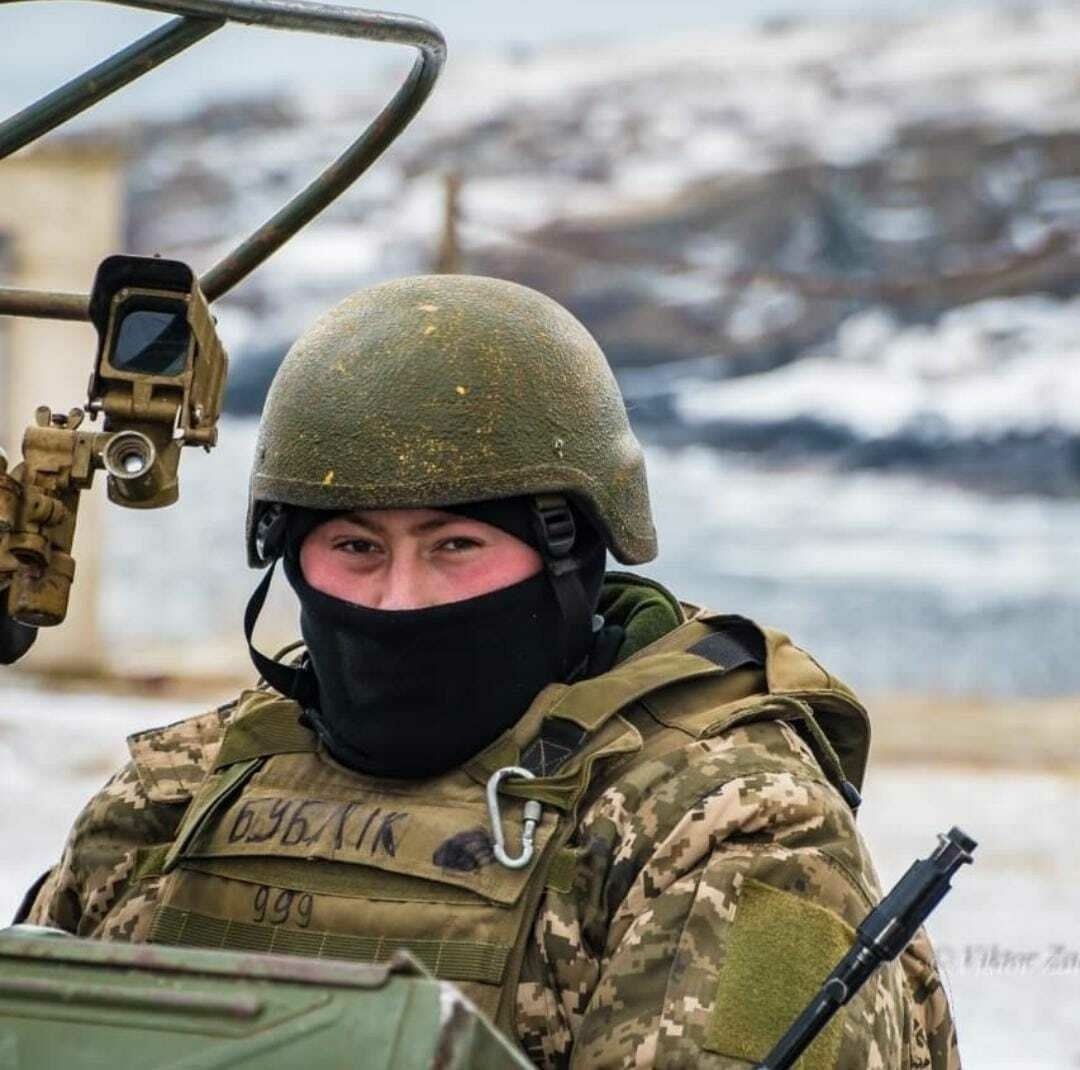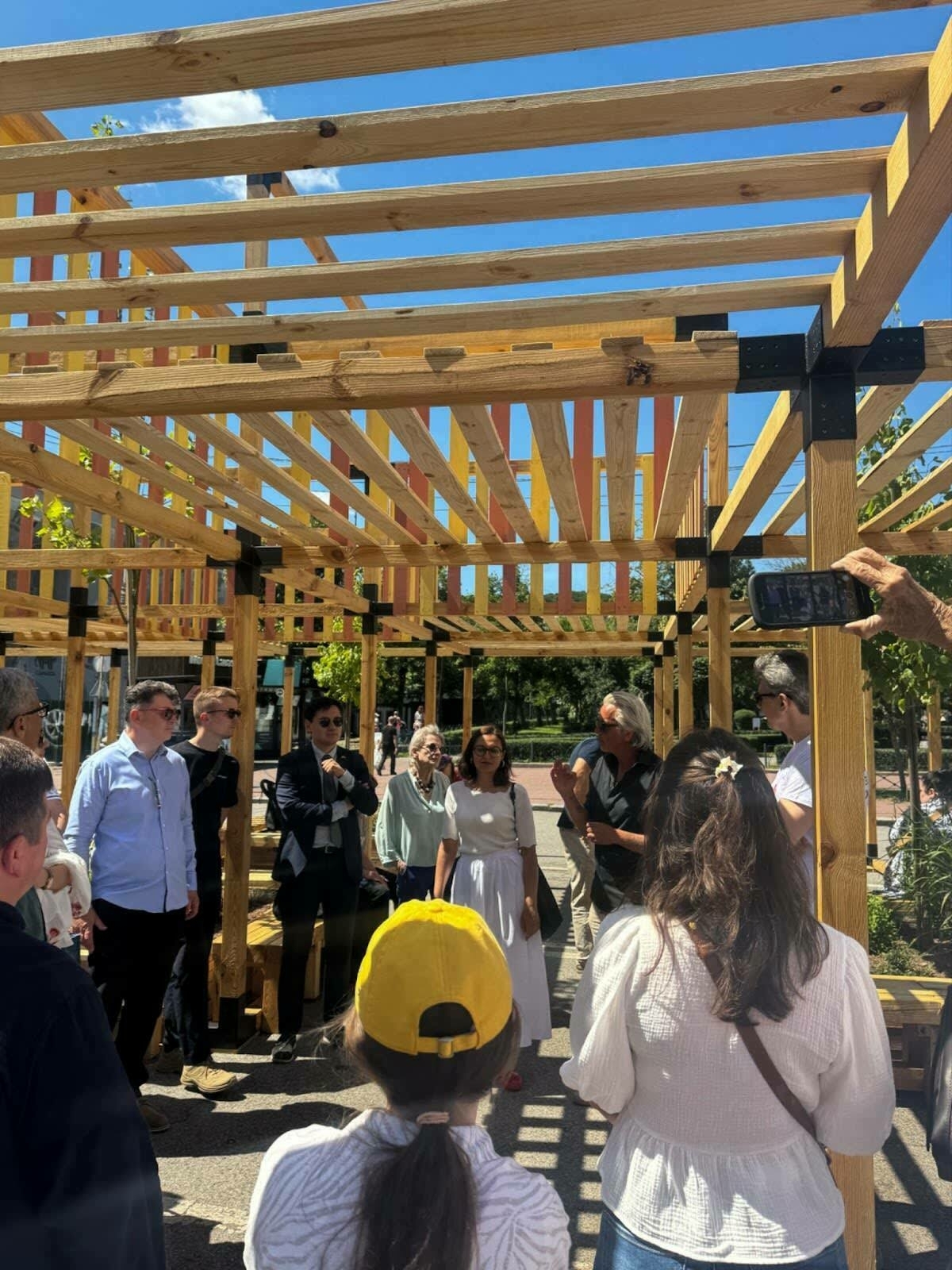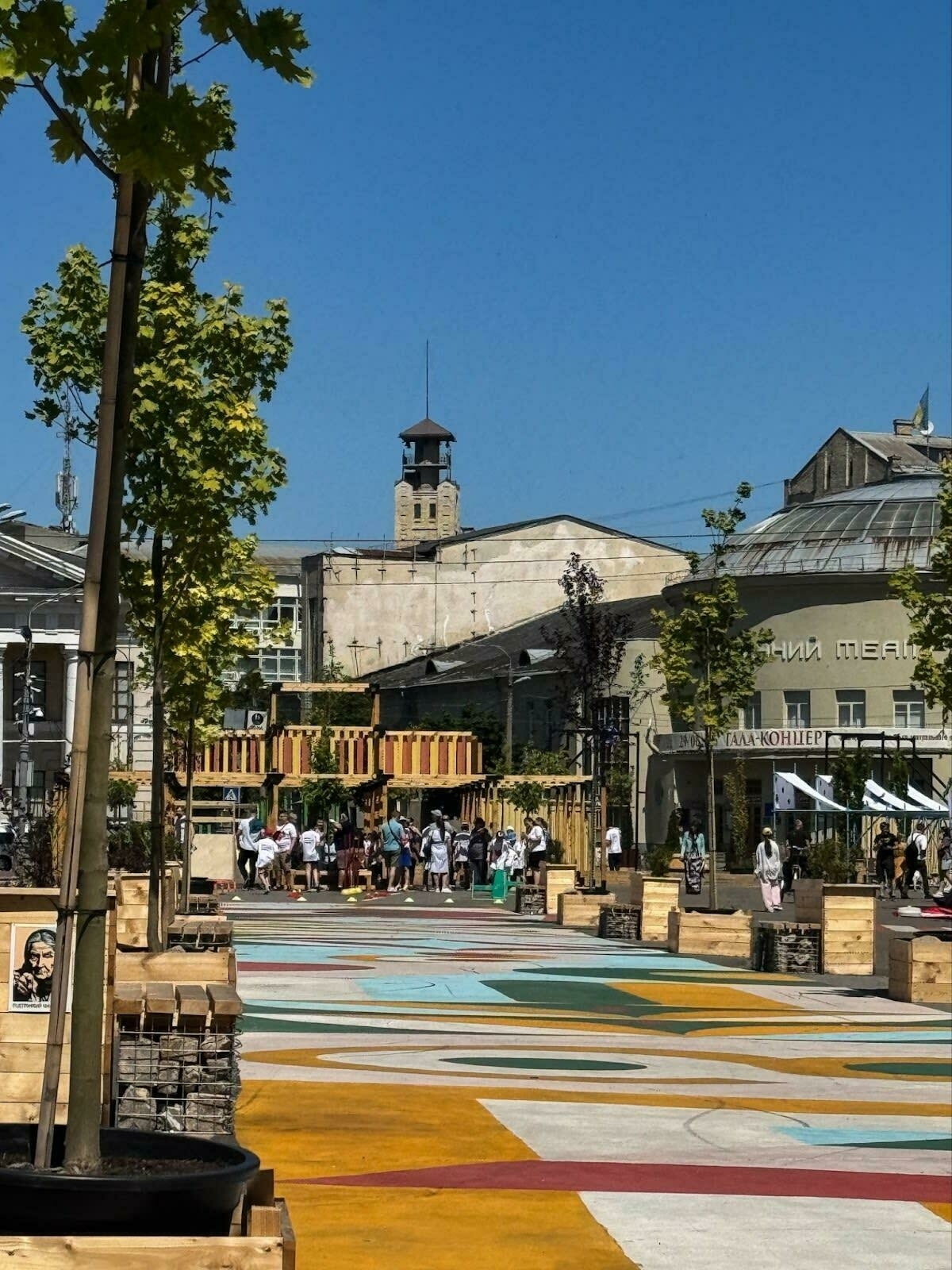-
Trump reportedly pledges to send 10 Patriot missiles to Ukraine, asks Germany to send battery
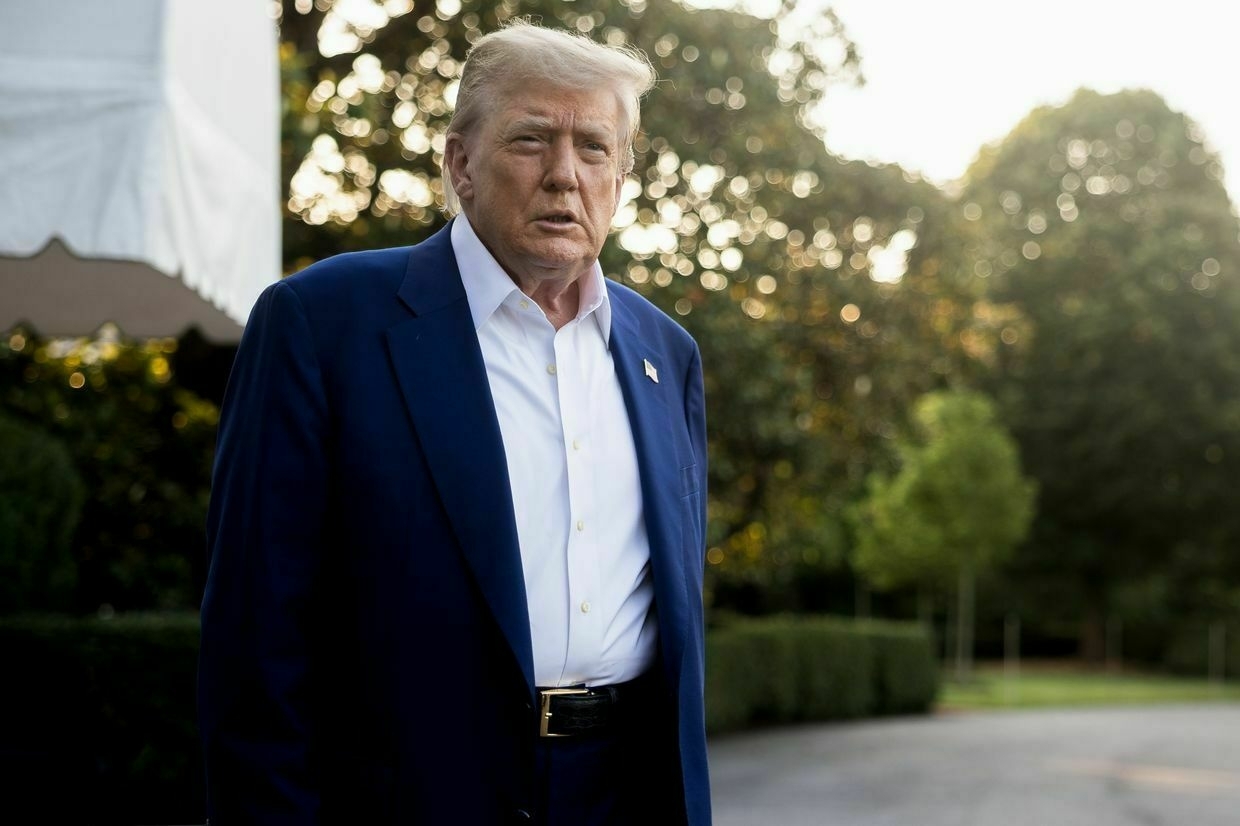
U.S. President Donald Trump has promised to send 10 Patriot interceptors to Ukraine - a smaller number than had been paused previously while en route to the country, Axios reported on July 8, citing its sources.
Trump has also suggested that Germany sell one of its Patriot batteries to Ukraine, according to three sources cited by Axios. They said the U.S. and European allies would split the cost of the purchase.
The discussion comes as Ukraine is calling upon its allies, particularly the United States, to support Ukrainian air defense by supplying “life-saving” Patriot systems and relevant missiles.
The Pentagon said on July 2 that some military assistance to Ukraine had been halted as the U.S. Defense Department conducts a review of foreign aid deliveries.
On July 7, the Pentagon said it would renew shipments, saying the additional defensive weapons were intended to help Ukraine protect itself while the U.S. works toward “a lasting peace."
Merz called Trump to request the release of the paused interceptors, according to Axios. During the call, Trump proposed that Germany sell one of its own Patriot batteries to Ukraine.
While no agreement has been reached, officials on both sides say negotiations are ongoing. German officials maintain that Berlin has already sent a higher share of its available Patriot systems to Ukraine than any other NATO country, including the U.S.
Russia has escalated its aerial campaign against Ukraine in recent weeks, launching large-scale missile and drone attacks that have killed and injured hundreds of civilians across multiple cities.
The suspension of U.S. arms deliveries, which include Patriots and precision-guided munitions, drew criticism from Kyiv. During a July 4 phone call with Ukrainian President Volodymyr Zelensky, Trump said he was not responsible for halting the aid, according to the Wall Street Journal.
He reportedly told Zelensky that a review of U.S. munitions stockpiles was initiated after last month’s U.S. strikes on Iranian nuclear sites, but denied ordering a full pause in shipments.
NBC News reported that Defense Secretary Pete Hegseth halted the shipments unilaterally on July 2, despite internal Pentagon assessments that the move would not jeopardize U.S. military readiness.
Special Envoy Keith Kellogg and Ukrainian Defense Minister Rustem Umerov are set to meet in Rome later this week to discuss resuming the stalled military aid, Politico reported on July 7.
Seeing war through the lens of narcissismWe usually think of narcissism as a personal flaw — a grandiose ego, a craving for attention, a lack of empathy. But what if narcissism is not just a diagnosis, but a lens? A way of understanding how individuals — and even entire nations — cope with wounds too painful to face directly?The Kyiv IndependentDr. Gary E Myers
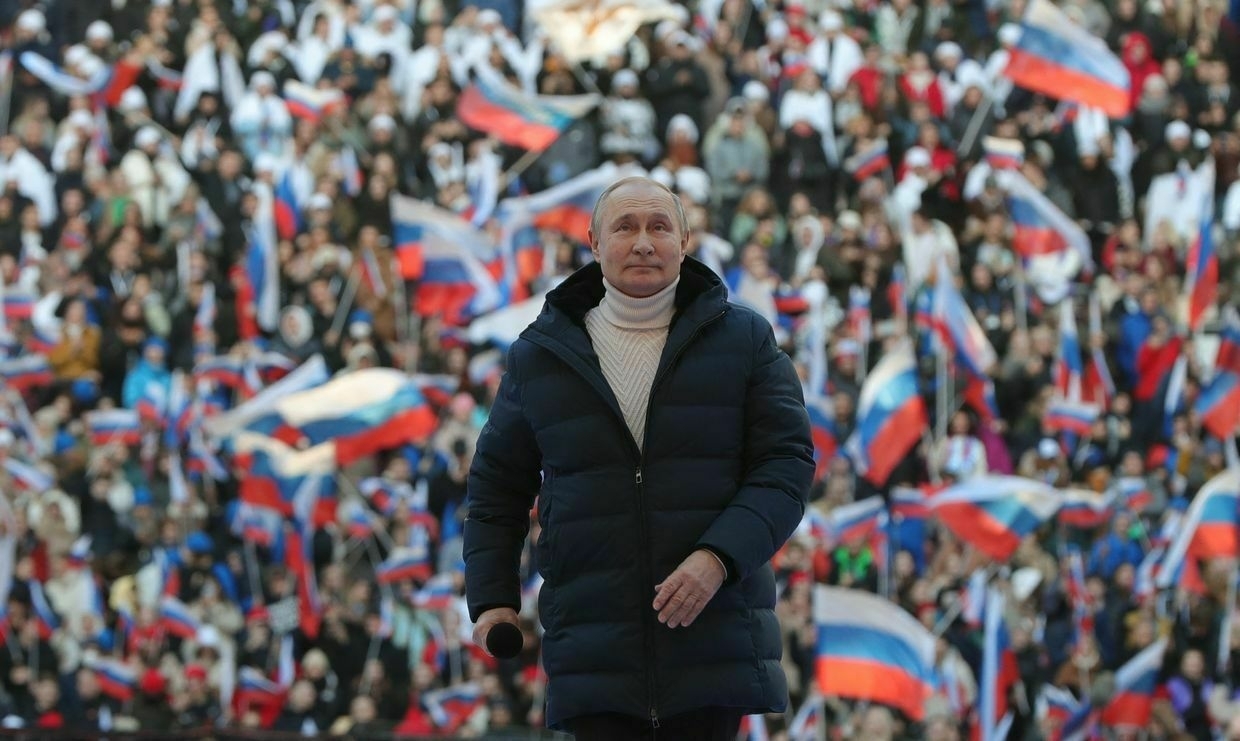
-
Ukraine’s minerals fund focus of private investment ahead of major recovery conference
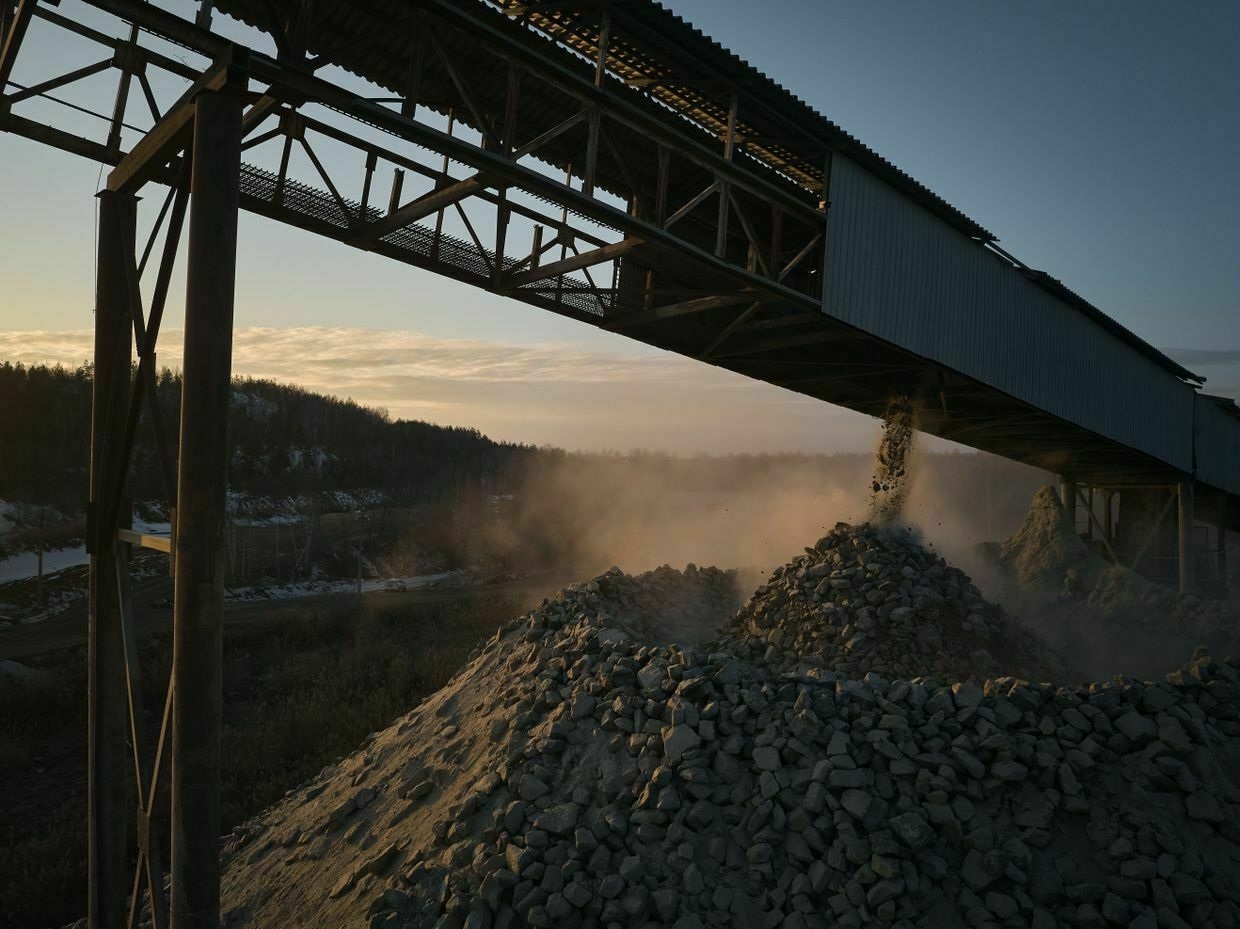
This week, thousands of companies, business heads, and global leaders are headed to Rome for the fourth Ukraine Recovery Conference on July 10, with many companies hoping for more clarity around the future of a U.S.-Ukraine minerals deal.
It’s been over two months since President Volodymyr Zelensky signed Washington’s so-called “minerals deal” — which, in reality, covers all Ukraine’s natural resources, including oil and gas, related infrastructure, and now, defense projects.
While the Economy Ministry has released some details on initial projects that could be financed by the investment fund created under the deal, businesses say they are still waiting for practical information about how investors will access tenders and projects.
“I expect more than some real projects will be presented (at the URC) and some real work will start between some specific investors and specific Ukrainian companies after this conference,” Andrii Brodsky, CEO of Ukrainian titanium company Velta, told the Kyiv Independent.
Ukrainian businesses told the Kyiv Independent that they think the URC, Ukraine’s largest reconstruction conference, will be the place for big developments on the fund. But as the U.S. continues to weigh sending more military aid to Ukraine after reports emerged it had halted a shipment of military aid, it’s unclear whether the U.S. shares the same high expectations. It’s also unknown, what if anything, the U.S. is planning around the deal at the conference.
Despite the uncertainty, Brodsky says there’s been a lot of action behind the scenes between the fund’s two developers, Ukraine’s Support Public-Private Partnership Agency (PPP Agency) and the United States International Development Finance Corporation (DFC).
Oleksii Sobolev, a deputy to Ukraine’s Economy Minister Yuliia Svyrydenko, told the Kyiv Independent in an interview published on July 7 that “right now, (Ukraine has) more than weekly communications with the DFC and (U.S. Treasury) Secretary Scott Bessent’s people, who are pushing this forward."
The URCBoth Ukrainian President Volodymyr Zelensky and Italian Prime Minister Giorgia Meloni are expected to attend the URC and hold meetings with world leaders on Ukraine’s strategic recovery program on July 10 and 11.
Previous URC events in Berlin, London, and Lugano, have been more focused on Ukraine’s urgent needs, like energy security. After Russia wiped out half of Ukraine’s energy infrastructure last year, the U.S. and the European Bank for Reconstruction and Development (EBRD) announced financial support for Ukraine’s energy facilities at the URC in Berlin.
This year, for the first time, Ukraine is also hoping to focus on defense. “We expect the signing of agreements (in the defense industry) between Ukrainian and foreign partners in the field of production, innovation, and technology,” Ukraine’s Economy Ministry told Forbes Ukraine.
The URC is an important event to continue support for Ukraine and a useful mechanism for organizations to sign deals, EBRD Vice President for Policy and Partnerships Mark Bowman told the Kyiv Independent on June 12. For government and financial institutions like the EBRD and European Investment Bank (EIB), the conference is also a chance to announce new support and investments.
But in Rome, talk of the minerals deal has excited the possibility of tangible deals for the private sector companies, something that has been missing from previous conferences. Zelensky has stressed the importance of the private sector in Ukraine’s recovery, and many of the extractive companies that will likely partner with U.S. investors are attending the conference, like Ukrainian giant BGV and UkrLithiumMining.
The U.S.-Ukraine Business Council, a Washington-based business advocacy group advising businesses working in Ukraine, will also hold side events at the URC. The group saw three new members in June, including mining and metals investment company TechMet, which is expected to bid on a Ukrainian lithium mine, signaling that American companies are starting to take the agreement seriously, and the council expects more will sign up once the fund is up and running.
The International Chambers of Commerce (ICC) will use the conference to push for more complete risk coverage, General Secretary John Denton previously told the Kyiv Independent in an interview. In particular, the ICC will problem-solve with export credit agencies on how to cover 100% of deals.
The big game changer, though, is that under the fund, the DFC is able to cover war risk insurance in Ukraine, said Brodsky. While war risk insurance programs do exist in Ukraine, they are few and far between, which deters foreign investors from Ukraine while the war is ongoing.
“The option to get loans from the fund backed by the DFC creates great appetite in the eyes of investors,” he said.
What we know about the minerals deal so farThe Ukrainian side has presented at least eight projects for investment with the pilot project already underway, the Dobra lithium mine in central Ukraine. Ukraine’s Economy Minister Yulia Svyrydenko confirmed that the U.S. government-backed company TechMet is likely to bid on the mine, having eyed up the deposit since 2023.
“The movement has already begun,” she wrote in a Facebook post on July 3.
“We will definitely inform (the public) about the announcement of the competition. All interested investors should have access to it. To make everything competitive and in compliance with the law.”
Svyrydenko told the Kyiv Independent in an interview that other projects presented to the DFC that the fund could potentially finance include a shelf and deepwater project, and the country’s largest oil refinery.
TechMet, which focuses on key minerals used in green energy, AI, and tech, has some serious financial backers, including the DFC. One of President Donald Trump’s allies, billionaire Ronald Lauder, will also join TechMet as an investment partner in the Dobra project, the Financial Times reported.
Svrydenko has said that she wants to get the first three projects off the ground in 18 months and expects the fund to be operational by the end of the year. On July 3, Zelensky signed off on changes to the Budget Code, enshrining the agreement into law and knocking down one of the bureaucratic hurdles.
A week before, Zelensky and Trump discussed the deal on the sidelines of the NATO summit in the Hague on June 25. Zelensky said that the conversation was productive and sent a “good signal."
The PPP and DFC announced information on June 30 that Ukraine will contribute 50% of revenues from the assets covered by the deal to the fund over 10 years. The board will also be equally represented by Ukrainians and American managers. Four specialized committees will oversee investment screening, investment, administration, and auditing.
The two bodies have not provided specific information on how exactly the U.S. deal wouldn’t clash with Ukraine’s 2021 memorandum of understanding with the EU for its critical materials. The agreement says it won’t undermine Ukraine’s EU obligations, but how that looks in practice is uncertain.
The limited number of projects that are ready for investment is also a concern, said Brodsky. There are only four or five players in Ukraine ready for U.S. investors who hold the licenses, understand the market, and have the assets.
“Each of these companies right now is ready to realize just one project. And this is actually not a very big amount of money,” he said.
In the lead-up to the URC, Ukraine’s Ecology Ministry made a historic decision by quickly declassifying data on material deposits that have long been a state secret on June 11, less than two months after the sealing the deal. While tens of thousands of documents still need to be digitized and translated, it’s a big win for Ukrainian companies that have fought for decades against political inertia to publish the data.
At the start of the minerals deal talks, the Ukrainian government said that the country houses some $26 trillion worth of natural resources.
‘Neither side wasted time’ — Ukraine’s economy minister on minerals deal negotiations with Trump’s ‘business-oriented’ administrationUkraine’s Economy Minister Yuliia Svyrydenko says her task is simple — to get the investment fund behind the closely watched minerals deal with the U.S. off the ground, and prove its detractors wrong. “There are so many criticisms from different parties that this fund is just a piece of paper we can put on the shelves — that it won’t be operational,” Svyrydenko, who is also Ukraine’s first deputy prime minister, tells the Kyiv Independent at Ukraine’s Cabinet of Ministers on July 4, the morning The Kyiv IndependentLiliane Bivings
The Kyiv IndependentLiliane Bivings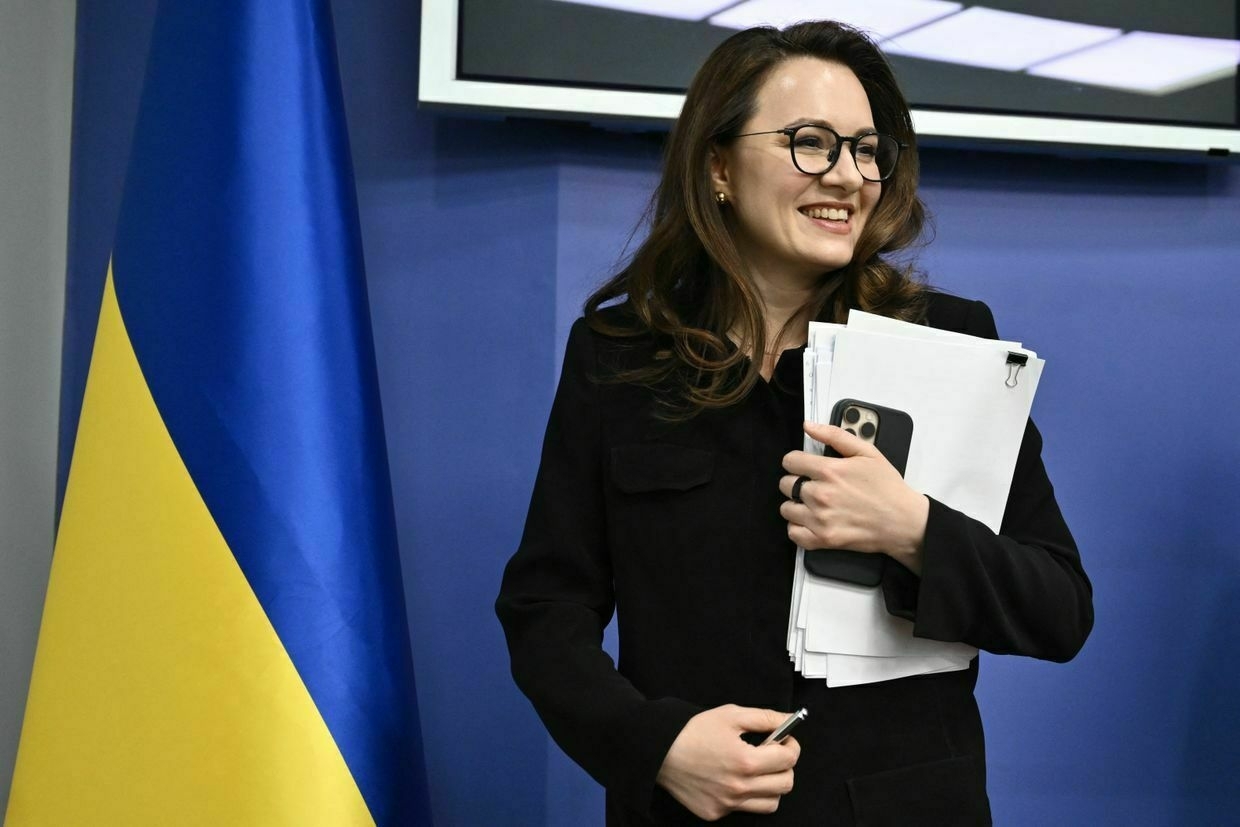
-
Ukraine's ambassador to the US to be dismissed, source says
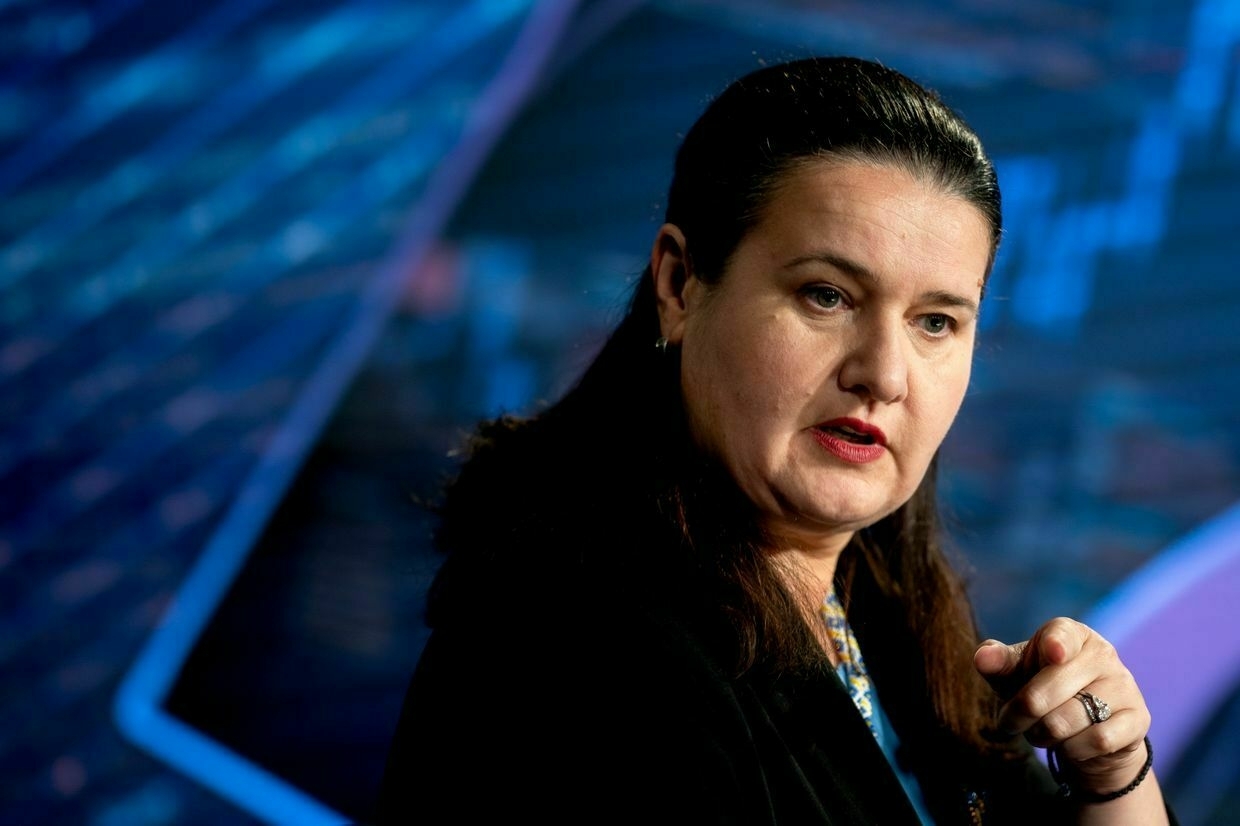
Ukraine’s ambassador to the U.S. has been informed by President Volodymyr Zelensky that she is to be dismissed, a source in the President’s Office confirmed to the Kyiv Independent on July 8.
Oksana Markarova has held the post since April 2021, and played a central role in coordinating U.S. military and financial support during the early phases of Russia’s full-scale invasion.
But her future in the role was thrown into doubt earlier this week when it was revealed that Zelensky and U.S. President Donald Trump discussed a potential change during a recent phone call, a source in the President’s Office told the Kyiv Independent on July 7.
According to the source, the topic of replacing her was raised by Kyiv, suggesting the move could be “useful for both sides.” The source added that there are multiple “strong candidates” in the running.
The source added that there are multiple “strong candidates” in the running.Prime Minister Denys Shmyhal, Deputy Prime Minister Olha Stefanishyna, Defense Minister Rustem Umerov, and Energy Minister Herman Halushchenko are among the candidates, Bloomberg previously reported.
The possible reshuffle comes at a moment of renewed tension between Kyiv and Washington. The U.S. Defense Department recently paused shipments of critical weapons systems, including Patriot missiles and precision-guided munitions, sparking concern in Kyiv.
The discussion about Ukraine’s representation in Washington also coincides with longstanding speculation about a broader government reshuffle.
‘Neither side wasted time’ — Ukraine’s economy minister on minerals deal negotiations with Trump’s ‘business-oriented’ administrationUkraine’s Economy Minister Yuliia Svyrydenko says her task is simple — to get the investment fund behind the closely watched minerals deal with the U.S. off the ground, and prove its detractors wrong. “There are so many criticisms from different parties that this fund is just a piece of paper we can put on the shelves — that it won’t be operational,” Svyrydenko, who is also Ukraine’s first deputy prime minister, tells the Kyiv Independent at Ukraine’s Cabinet of Ministers on July 4, the morning The Kyiv IndependentLiliane Bivings
The Kyiv IndependentLiliane Bivings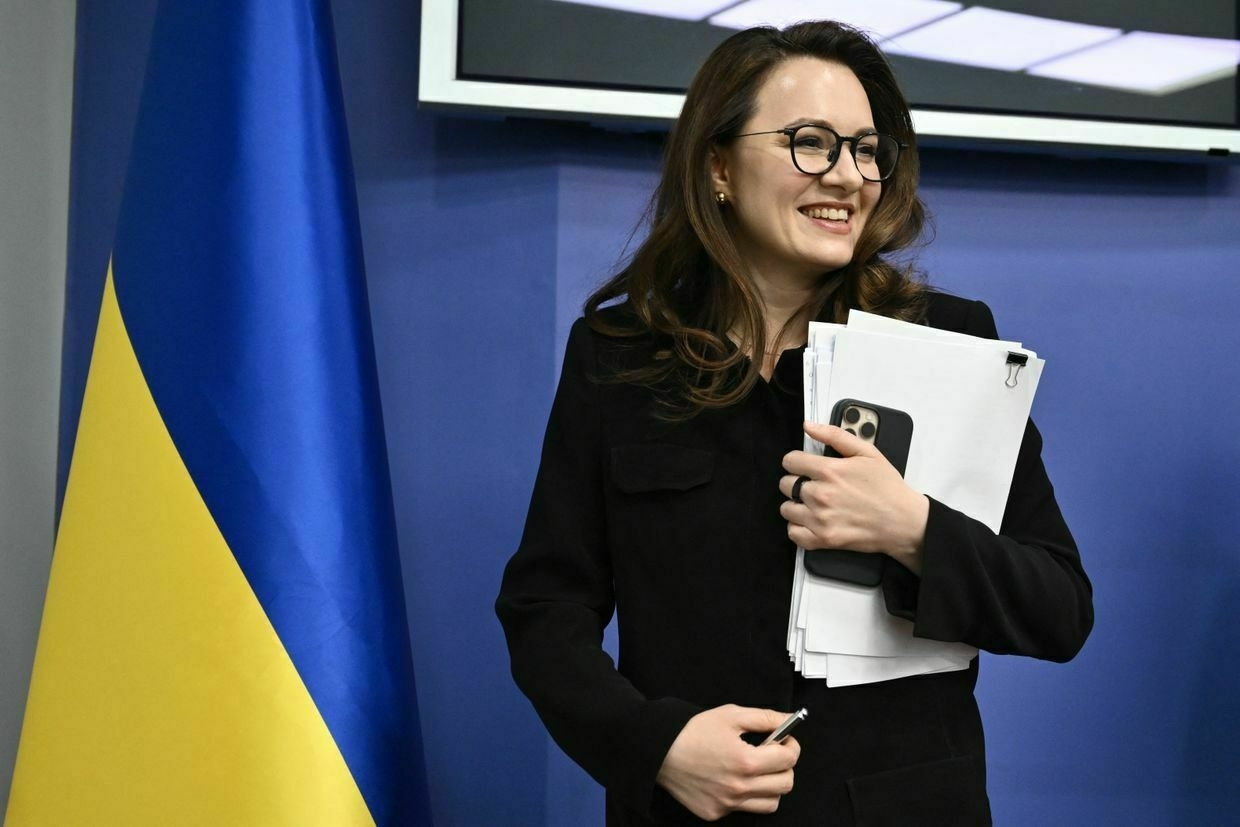
-
Overcoming Slovakia, Hungary opposition, EU set to approve new Russia sanctions package this week, Ukrainian official says
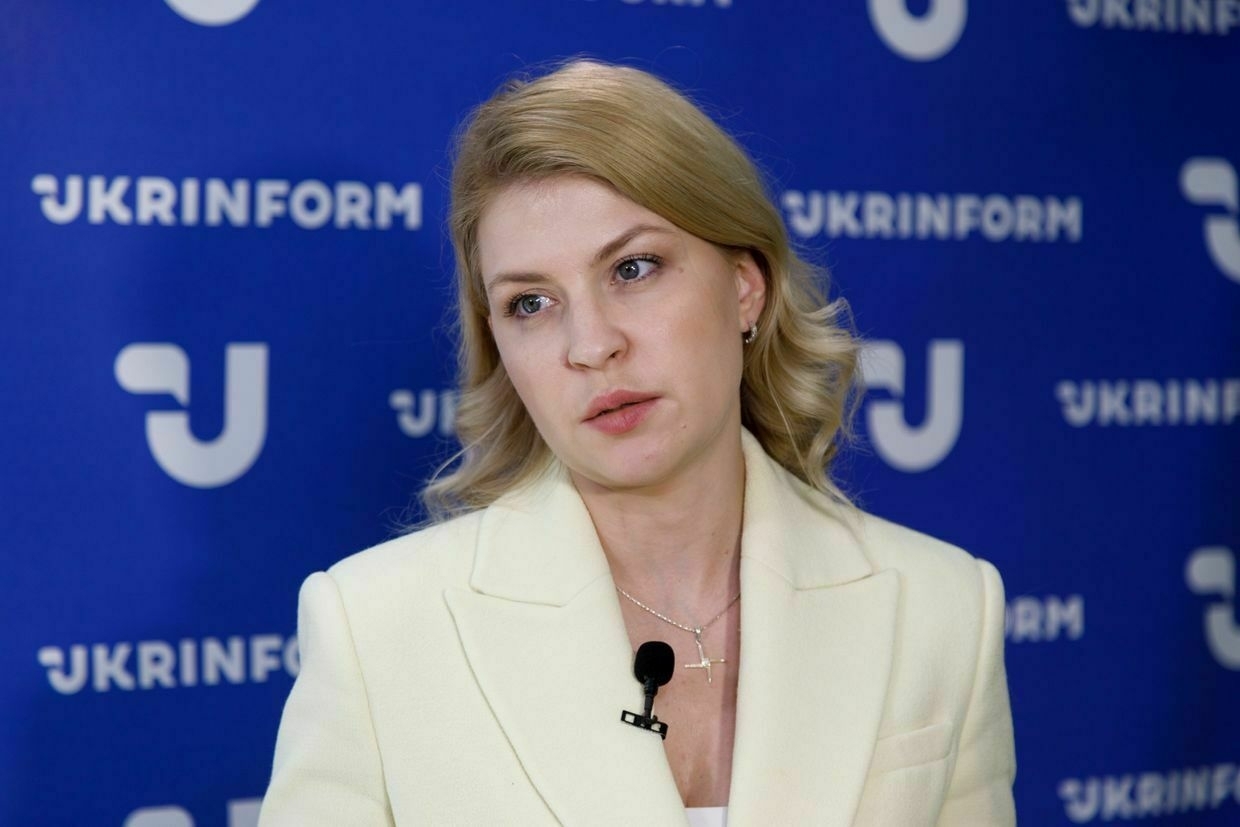
After failing to approve 18th package of sanctions against Russia due to opposition from Hungary and Slovakia, EU countries are expected to finalize an agreement this week, Ukrainian Deputy Prime Minister Olha Stefanishyna said on July 7.
Since EU sanctions require unanimous approval, a single veto could prevent implementation. In late June, EU ambassadors did not approve the sanctions package because of objections from Budapest and Bratislava.
“According to my information, European countries will still reach an agreement this week on the 18th package of sanctions, together with Slovakia and Hungary,” she told Ukrainian broadcaster ICTV.
The delay followed earlier signs of resistance from both governments, despite the package being introduced shortly after the previous round of sanctions took effect on May 20.
“It is noteworthy that during the previous period, when the decision on the 17th package was being made, Hungary did not vote for this decision until the last day,” Stefanishyna said.
“There was even almost a day when these sanctions were not put into effect."
Unlike Hungarian Prime Minister Viktor Orban, who has consistently opposed sanctions and military aid for Ukraine, Slovakia has not previously attempted to block new EU measures.
Bratislava requested a delay in adopting the latest package until the bloc clarifies the financial implications of RePowerEU — an initiative to end reliance on Russian fossil fuels by 2030.
“Without radical political leadership in the European Union, it will be very difficult,” Stefanishyna said, warning of future veto threats by individual member states.
The 18th package includes new restrictions targeting Russia’s energy and banking sectors, as well as transactions linked to the Nord Stream pipeline project.
These measures are part of a broader European effort to tighten pressure on Moscow as it continues to reject calls for an unconditional ceasefire in Ukraine.
While the EU pushes forward with additional restrictions, the United States has not imposed new sanctions on Russia since President Donald Trump took office in January.
‘Neither side wasted time’ — Ukraine’s economy minister on minerals deal negotiations with Trump’s ‘business-oriented’ administrationUkraine’s Economy Minister Yuliia Svyrydenko says her task is simple — to get the investment fund behind the closely watched minerals deal with the U.S. off the ground, and prove its detractors wrong. “There are so many criticisms from different parties that this fund is just a piece of paper we can put on the shelves — that it won’t be operational,” Svyrydenko, who is also Ukraine’s first deputy prime minister, tells the Kyiv Independent at Ukraine’s Cabinet of Ministers on July 4, the morning The Kyiv IndependentLiliane Bivings
The Kyiv IndependentLiliane Bivings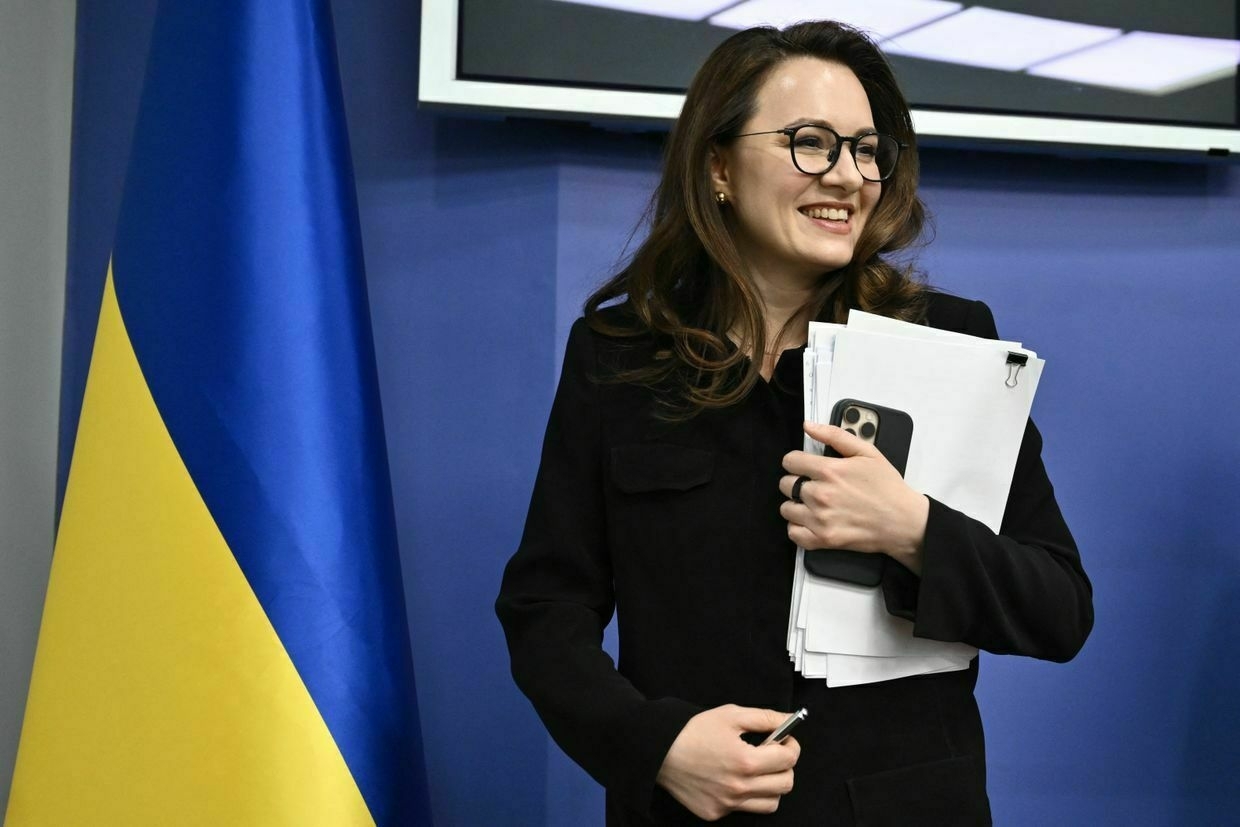
-
TRUMP: We're gonna send MORE WEAPONS to Ukraine! #shorts
-
9 killed, 81 injured in Russian attacks on Ukraine over past day
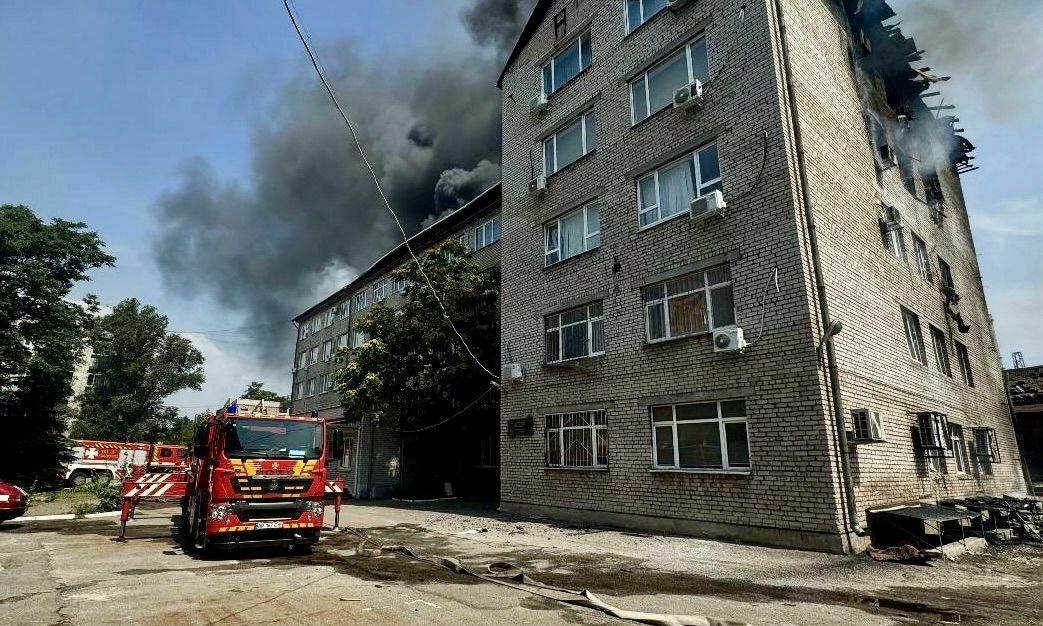
At least nine civilians were killed and 81 others injured in Russian attacks across Ukraine over the past 24 hours, regional authorities reported on July 8.
Ukraine’s Air Force said Russia launched 54 drones overnight, including Iranian-designed Shahed-type attack drones, and fired four S-300/400 guided missiles.
Air defenses intercepted 34 drones, while another eight were likely used as radar-jamming decoys. Drones struck five locations across the country.
The overnight assault was repelled using aircraft, electronic warfare, mobile fire groups, and missile defense systems, the military said.
In Kharkiv Oblast, one person was killed and 40 others were injured, including three children, as the city of Kharkiv and seven other settlements came under attack, Governor Oleh Syniehubov reported.
Russian strikes on Zaporizhzhia Oblast injured 20 people and damaged at least 64 houses and apartment buildings, Governor Ivan Fedorov said.
In Donetsk Oblast, three civilians were killed — two in Oleksiyevo-Druzhkivka and one in Novotroitske — and 10 more were injured, according to Governor Vadym Filashkin.
In Sumy Oblast, four people were killed and four more injured in Russian strikes, the local administration reported.
One person was killed and four others were injured in Kherson Oblast, where Russian forces hit residential areas and public infrastructure, damaging two apartment buildings and 17 houses, according to Governor Oleksandr Prokudin.
Three people were injured in Dnipropetrovsk Oblast, where Russian troops attacked with first-person-view (FPV) drones, Governor Serhii Lysak said.
The wave of attacks follows Russia’s ongoing refusal to accept a ceasefire and comes amid rising use of drone and missile strikes against Ukraine’s civilian infrastructure.
‘They have to be able to defend themselves’ — Trump says US will send additional weapons shipments to Ukraine, criticizes Putin“They’re getting hit very hard. We’re gonna have to send more weapons, your defensive weapons primarily,” U.S. President Donald Trump said. The Kyiv IndependentVolodymyr Ivanyshyn
The Kyiv IndependentVolodymyr Ivanyshyn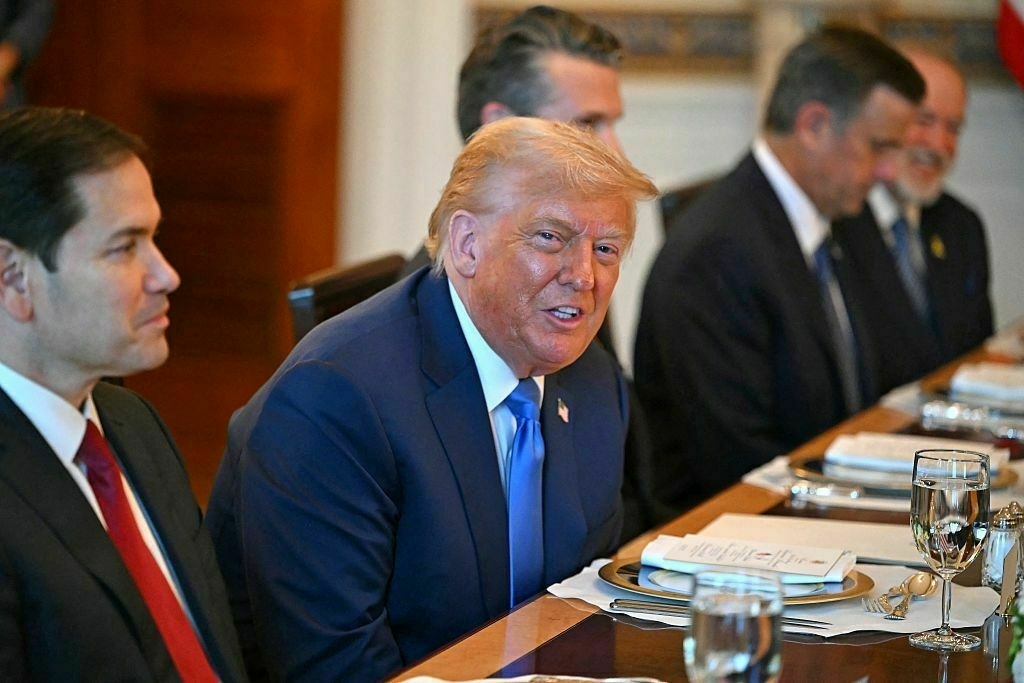
-
On 1-year anniversary, Ukraine names Russian officer linked to deadly strike on Kyiv Okhmatdyt children's hospital
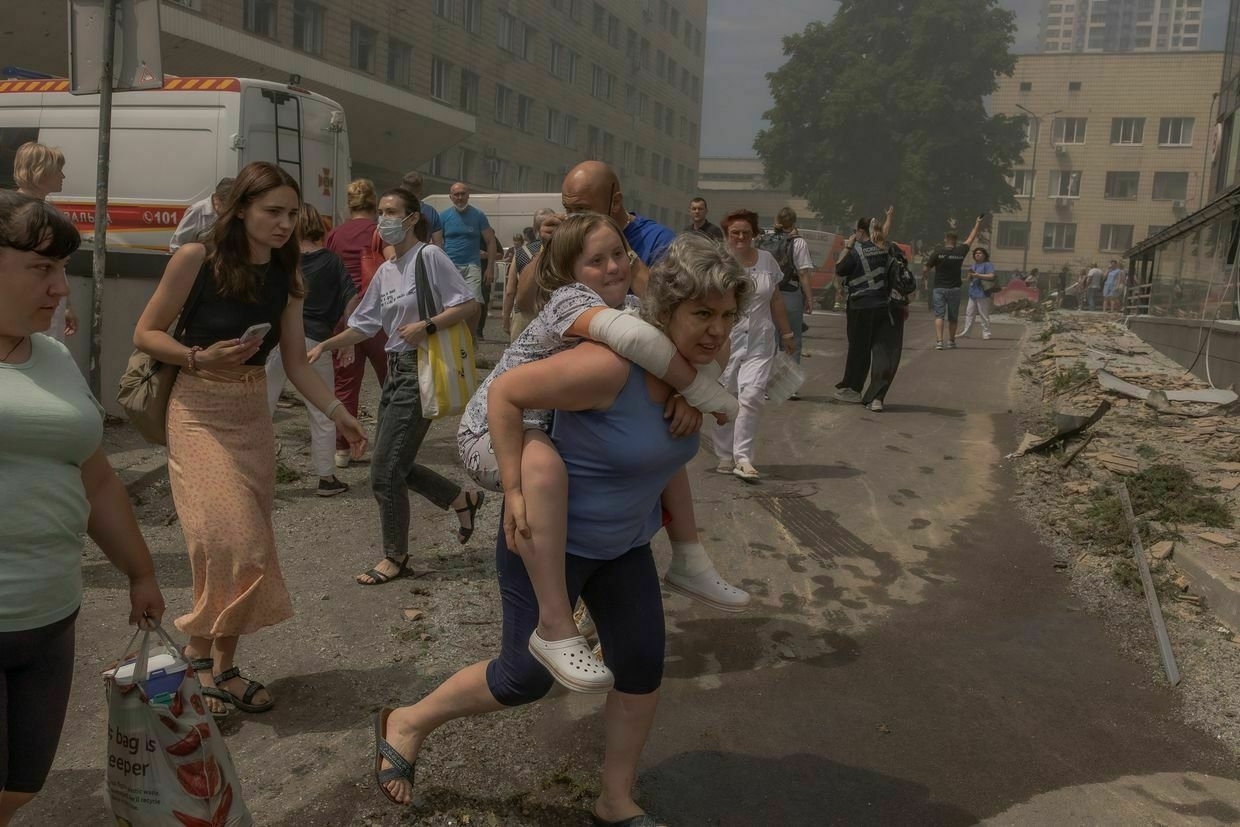
Ukraine’s military intelligence (HUR) identified Russian Armed Forces Major Denis Sheynov as allegedly involved in the July 2024 missile strike on Kyiv’s Okhmatdyt children’s hospital, HUR reported on July 8.
The strike, which killed two adults and injured at least 34 people, directly hit the country’s largest pediatric medical center, where 627 children were receiving treatment at the time.
According to HUR, Sheynov is the head of the special engineering service of the 121st Heavy Bomber Aviation Regiment, part of Russia’s 22nd Heavy Bomber Aviation Division, tasked with executing the strike.
Sheynov, born in Saratov on Jan. 30, 1978, was reportedly responsible for the technical preparation of the X-101 air-launched cruise missiles used in the attack.
He graduated from the Saratov Higher Military Command Engineering School Missile Forces, and previously served in Syria in 2018. Sheynov has been awarded several medals by the Russian government, including for participation in the Syrian war.
Ukrainian authorities previously charged Russian Lieutenant General Sergey Kobylash in absentia for ordering the strike, which was widely condemned internationally.
Kobylash gave the order at around 9:15 a.m., while the hospital was struck at 10:45 a.m.
‘They have to be able to defend themselves’ — Trump says US will send additional weapons shipments to Ukraine, criticizes Putin“They’re getting hit very hard. We’re gonna have to send more weapons, your defensive weapons primarily,” U.S. President Donald Trump said. The Kyiv IndependentVolodymyr Ivanyshyn
The Kyiv IndependentVolodymyr Ivanyshyn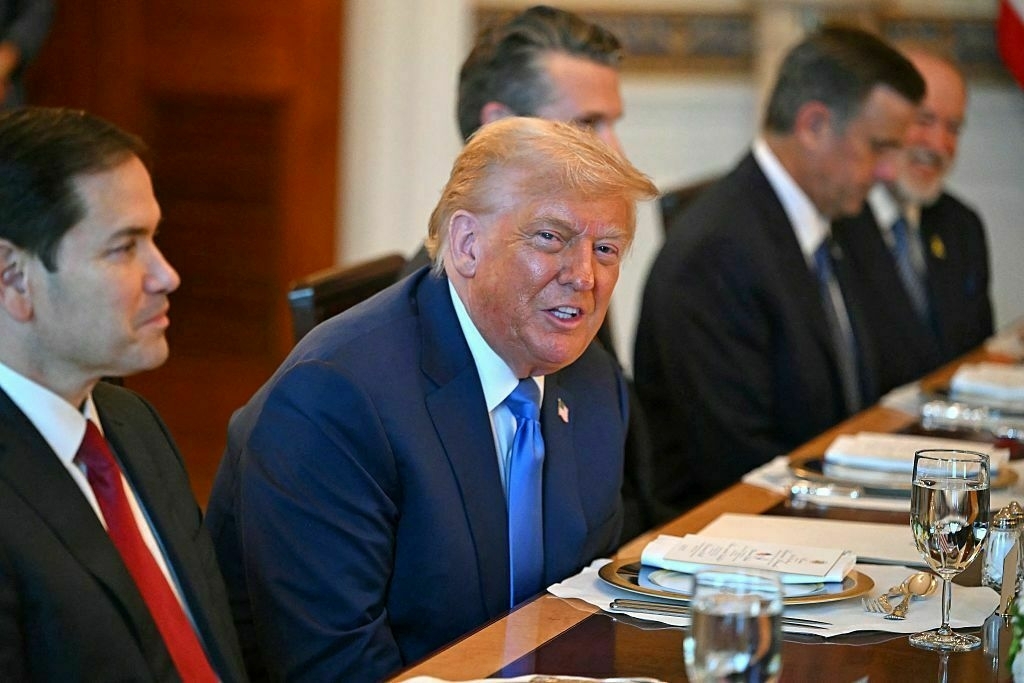
-
Crimea's Striletska Bay 'practically empty' of Russian Black Sea Fleet ships, Ukraine's partisans say
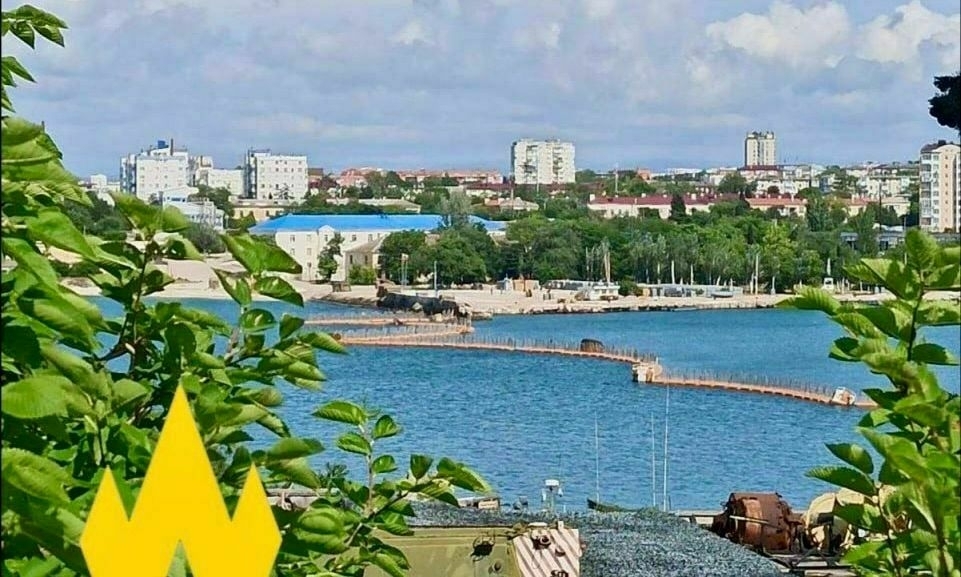
Striletska Bay in occupied Sevastopol, once a key base for Russian warships in Crimea, is now nearly empty and used primarily for mooring tugboats and small patrol craft, the Atesh partisan group reported on July 8.
According to the group, Russia now uses the bay mainly for maintenance work and rare anti-sabotage defense drills, having pulled most major vessels from the area.
“Recently, the bay has been practically empty… The degradation of the occupation fleet in Sevastopol is becoming increasingly obvious. Striletska Bay, which previously housed a large number of combat vessels, is now idle.” Atesh said.
The remaining combat units are periodically rotated and redeployed in an apparent effort to avoid detection by Ukrainian reconnaissance.
“Every object is under control — no ship will go unnoticed,” Atesh said, adding that all ship movements are being tracked and shared with the Ukrainian Armed Forces.
Sevastopol has served as the base for Russia’s Black Sea Fleet since the illegal annexation of Crimea in 2014. Repeated Ukrainian attacks using naval drones, missiles, and long-range drones have forced the Kremlin to reduce its naval presence in occupied Crimea.
Ukraine has destroyed several Russian vessels, including the Caesar Kunikov landing ship, the Sergei Kotov patrol ship, the Ivanovets missile corvette, and multiple high-speed landing crafts.
The shrinking Russian presence in Sevastopol comes as Ukraine steps up drone attacks against other Black Sea Fleet locations. On July 6, drones struck the fleet’s facilities in Novorossiysk, Krasnodar Krai, a key port east of Crimea across the Kerch Strait.
‘They have to be able to defend themselves’ — Trump says US will send additional weapons shipments to Ukraine, criticizes Putin“They’re getting hit very hard. We’re gonna have to send more weapons, your defensive weapons primarily,” U.S. President Donald Trump said. The Kyiv IndependentVolodymyr Ivanyshyn
The Kyiv IndependentVolodymyr Ivanyshyn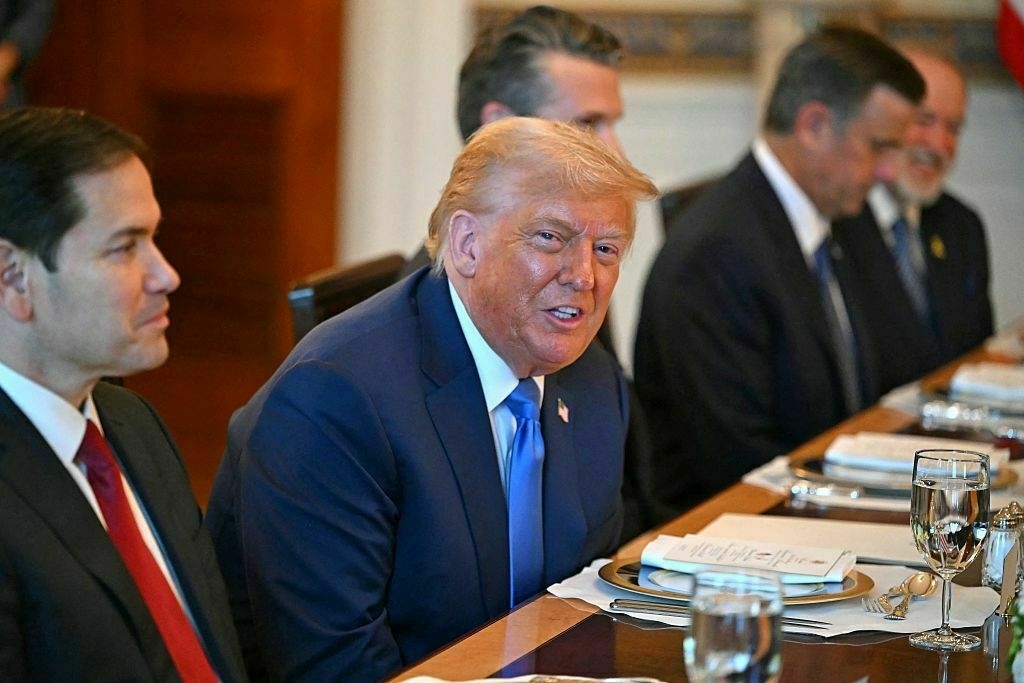
-
Trump reportedly told Zelensky he's not responsible for US arms halt to Ukraine
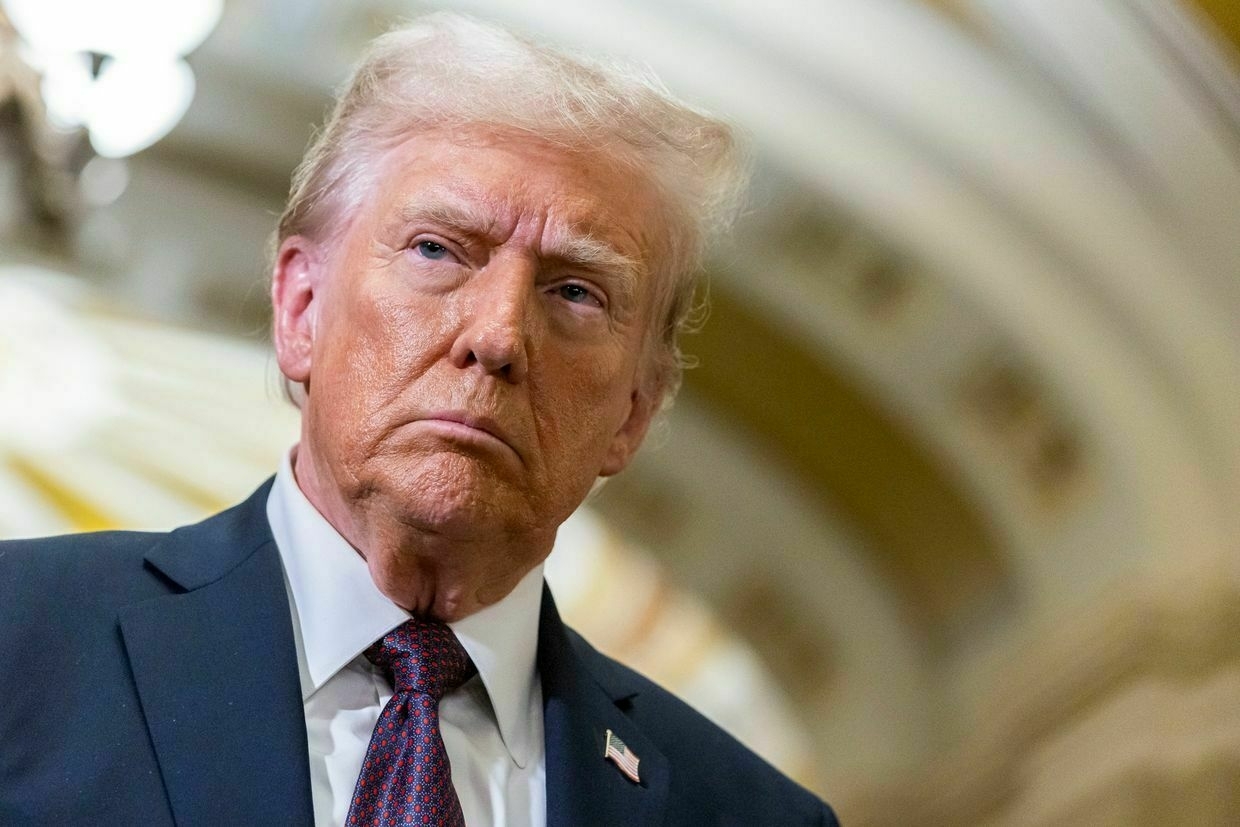
U.S. President Donald Trump told President Volodymyr Zelensky during a phone call on July 4 that he was not responsible for the suspension of U.S. arms shipments to Ukraine, The Wall Street Journal (WSJ) reported on July 7, citing unnamed sources familiar with the matter.
The suspension of aid, which includes Patriot air defense missiles and precision-guided munitions, has drawn criticism from Kyiv amid an intensifying Russian aerial campaign that has killed and injured hundreds of civilians in recent weeks.
According to WSJ, Trump told the Ukrainian president that he had ordered a review of Pentagon munitions stockpiles following last month’s U.S. strikes on Iran’s nuclear sites, but he did not direct the military to halt weapons deliveries.
NBC News reported on July 4 that Defense Secretary Pete Hegseth unilaterally halted the shipment to Ukraine on July 2, despite internal Pentagon assessments showing the aid would not compromise U.S. military readiness.
According to Politico, U.S. Special Envoy Keith Kellogg and Defense Minister Rustem Umerov are scheduled to meet in Rome later this week to discuss restarting U.S. military aid to Ukraine.
Trump did not acknowledge a halt in U.S. weapons shipments to Ukraine. On July 7, he said the U.S. would provide Ukraine with “more weapons,” pointing to the scale of Russia’s attacks.
“They have to be able to defend themselves, they’re getting hit very hard now,” Trump told reporters alongside a U.S. and Israeli delegation at the White House.
The comments follow Trump’s July 3 call with Russian President Vladimir Putin, after which he said he was “very disappointed” with the Kremlin’s continued refusal to end hostilities.
The following day, Trump and Zelensky spoke by phone in what the U.S. president described as a “very strategic” conversation focused on Ukraine’s need for air defenses.
Two rounds of direct talks between Russia and Ukraine held in Istanbul in May and June led only to prisoner exchanges, with no breakthrough on ending hostilities. Moscow has maintained maximalist conditions while rejecting calls for an unconditional ceasefire.
Russia striking NATO while China invades Taiwan ‘plausible’ scenario, experts sayIf Beijing moves against Taiwan, NATO might soon find itself in a two-front war with China and Russia — or so the alliance’s secretary general believes. “If Xi Jinping would attack Taiwan, he would first make sure that he makes a call to his very junior partner in all of this, Vladimir Vladimirovich Putin… and telling him, ‘Hey, I’m going to do this, and I need you to to keep them busy in Europe by attacking NATO territory,’” Secretary General Mark Rutte said in a July 5 interview with the New The Kyiv IndependentMartin Fornusek
The Kyiv IndependentMartin Fornusek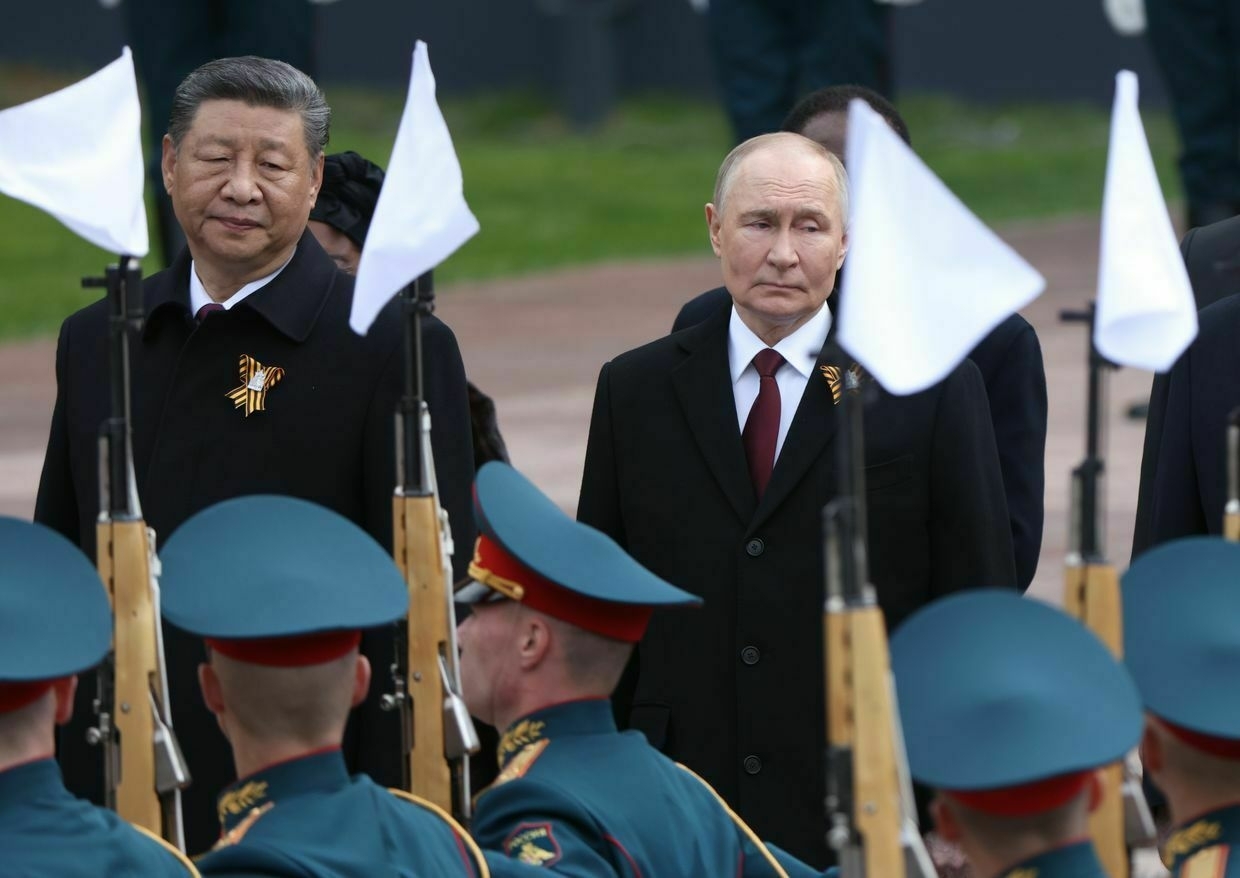
-
Kellogg, Umerov set to meet, discuss resumption of US military aid to Ukraine, Politico reports
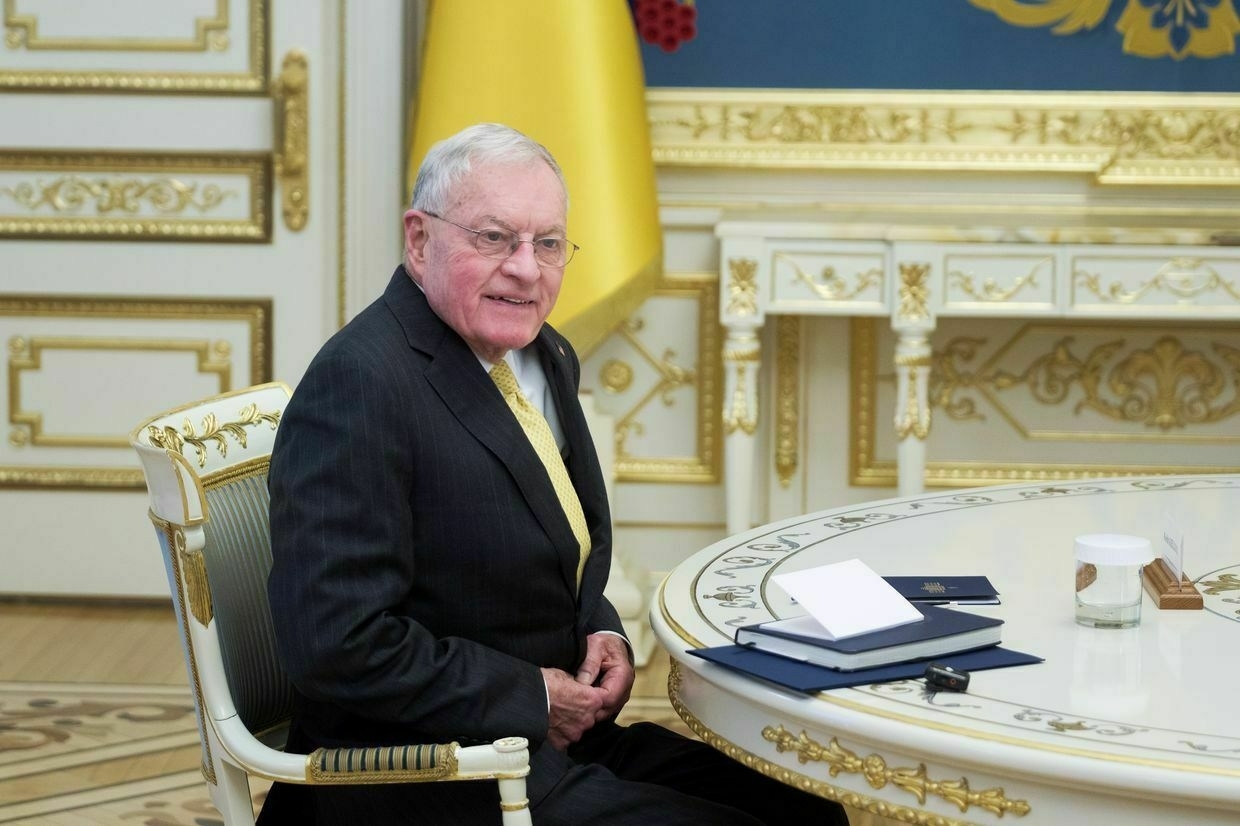
U.S. Special Envoy Keith Kellogg and Defense Minister Rustem Umerov are set to meet at the Ukraine Recovery Conference in Rome later this week to discuss the resumption of U.S. military assistance to Ukraine, Politico reported on July 7.
Following the talks between Kellogg and Umerov in Rome, Politico reported that more meetings are set to take place in Kyiv over the next two weeks.
The United States halted weapons shipments to Ukraine amid a capability review, the White House and Pentagon previously confirmed, with U.S. President Donald Trump on July 3 denying the pause.
Days later, Trump said that the United States would provide Ukraine with additional shipments of weapons amid intensified Russian attacks.
“We’re gonna send some more weapons we have to them, they have to be able to defend themselves, they’re getting hit very hard now,” Trump said on July 7.
The halted U.S. military assistance to Ukraine could be resumed following planned high-level meetings at the conference, two people familiar with the matter told Politico.
A Kyiv meeting between Kellogg and Umerov following the Ukraine Recovery Conference was planned before the U.S. halted military assistance to Ukraine.
Kellogg’s spokesperson Morgan Murphy said the meeting was “set up before news of the arms pause came to light last week."
Ukraine would like to promptly resume supplies of air defense and precision munitions, while the U.S. has signalled that the delivery of armored vehicles and engineering equipment may resume soon, the two sources said.
Pentagon spokesperson Sean Parnell confirmed on July 2 that some military assistance to Ukraine has been halted as the U.S. Defense Department conducts a review of foreign aid deliveries.
“This capability review… is being conducted to ensure U.S. military aid aligns with our defense priorities… We see this as a common-sense, pragmatic step towards having a framework to evaluate what munitions are sent and where,” Parnell said.
Despite the Pentagon announcement, Trump did not acknowledge a halt in U.S. weapons shipments to Ukraine.
“Why did you pause weapons shipments to Ukraine?” a reporter asked Trump as the U.S. president prepared to board Air Force One on July 3.
“We haven’t,” Trump replied. “We’re giving weapons."
The Ukraine Recovery Conference is set to take place July 10-11, with leaders, including President Volodymyr Zelensky, set to attend.
Exclusive: Ukraine pitches deepwater gas, oil refinery projects to US under landmark minerals dealProjects Kyiv has submitted to the U.S. for consideration as part of a profit-sharing deal for Ukraine’s resources include a shelf and deepwater project and an oil refinery that comes under frequent attack by Russia, Ukraine’s Economy Minister Yuliia Svyrydenko told the Kyiv Independent in an interview published on July 7. After months of hard-fought negotiations around the investment agreement — known more widely as the “minerals deal” for its focus on Ukraine’s critical minerals — the two sid The Kyiv IndependentLiliane Bivings
The Kyiv IndependentLiliane Bivings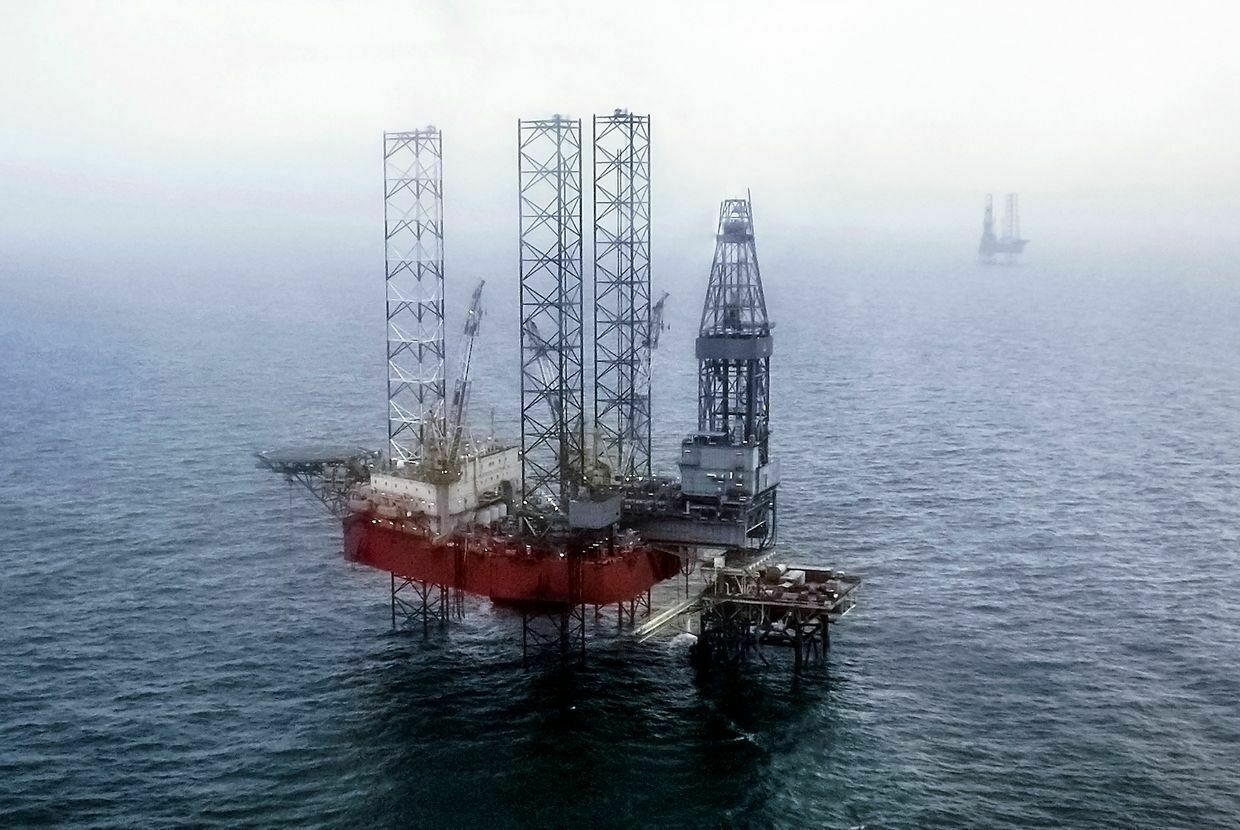
-
'They have to be able to defend themselves' — Trump confirms additional weapons shipments to Ukraine, criticizes Putin
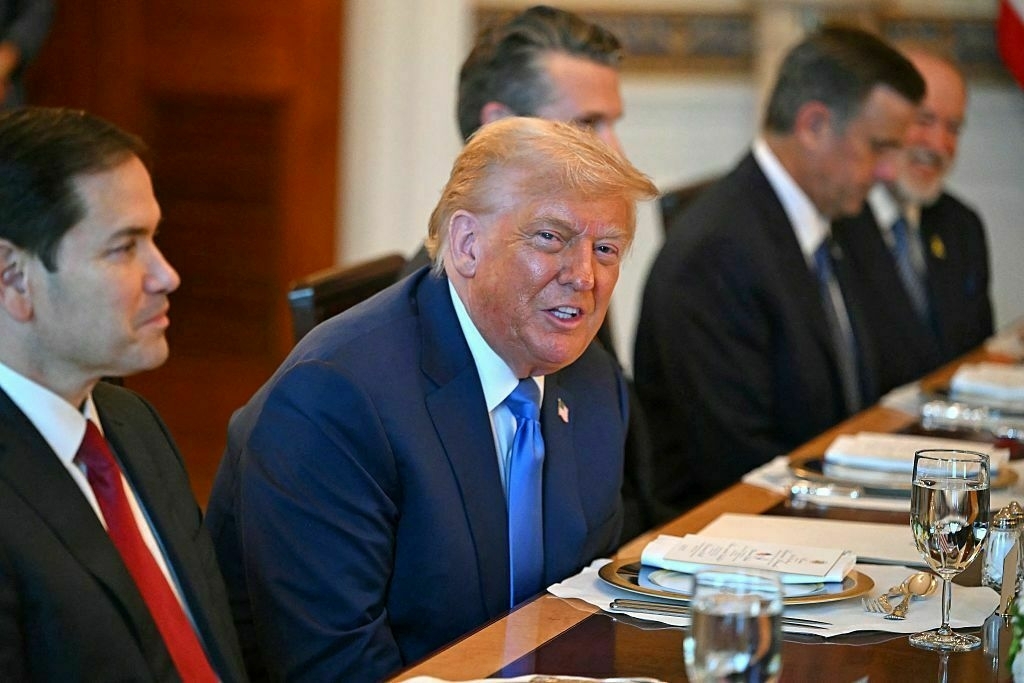
The United States will send “more weapons” to Ukraine amid intensified Russian strikes, U.S. President Donald Trump told reporters on July 7, adding that he is disappointed in Russian President Vladimir Putin.
“We’re gonna send some more weapons we have to them, they have to be able to defend themselves, they’re getting hit very hard now,” Trump said alongside U.S. and Israeli delegations at the White House.
The U.S. halted weapons shipments to Ukraine amid a capability review, the White House and Pentagon previously said, with Trump later denying the pause.
Trump previously said he was disappointed in Putin for not making progress to end Russia’s war against Ukraine, following a phone call between the two leaders on July 3.
On July 7, Trump again said he was unhappy with Putin for failing to cooperate with U.S. efforts to end the war in Ukraine.
“It’s a horrible thing, and I’m not happy with President Putin at all,” Trump said. “I’m disappointed frankly that President Putin hasn’t stopped."
He noted that the additional assistance the U.S. will supply to Ukraine will mainly consist of defense weapons amid increased Russian attacks.
“They’re getting hit very hard. We’re gonna have to send more weapons, your defensive weapons primarily, but they’re getting hit very, very hard. So many people are dying in that mess,” Trump said.
President Volodymyr Zelensky has previously said he and Trump discussed supplying Ukraine with additional Patriot missile systems following a phone call between the two on July 4.
Zelensky described his recent phone call with Trump as “the best conversation in all this time” in an evening address on July 5.
"Patriot (missiles) are key to protection from ballistic (missiles). We discussed several other important issues that our teams will work out in detail at meetings in the near future,” he said.
Trump described his July 3 conversation with Putin as disappointing, saying that the call “didn’t make any progress” in stopping Russia’s war against Ukraine.
“I’m very disappointed with the conversation I had today with President Putin,” Trump told journalists. “Because I don’t think he’s there. And I’m very disappointed. I don’t think he’s looking to stop this fighting."
Pentagon spokesperson Sean Parnell confirmed on July 2 that some military assistance to Ukraine has been halted as the U.S. Defense Department conducts a review of foreign aid deliveries.
“This capability review… is being conducted to ensure U.S. military aid aligns with our defense priorities… We see this as a common-sense, pragmatic step towards having a framework to evaluate what munitions are sent and where,” Parnell said.
Ukraine war latest: Russian airports cancel nearly 300 flights amid drone attacks on RussiaKey developments on July 7: * Russian airports cancel nearly 300 flights amid drone attacks on Russia * BRICS summit statement condemns attacks on Russian railways, avoids urging Russia to cease war efforts in Ukraine * Ukrainian drone strike hits major oil refinery in Russia’s Krasnodar Krai, HUR source claims * Ukraine confirms drone strike on Russian chemical plant near Moscow * Russia strikes conscription offices in Kharkiv and Zaporizhzhia, Ukraine says Several Russian airports have The Kyiv IndependentThe Kyiv Independent news desk
The Kyiv IndependentThe Kyiv Independent news desk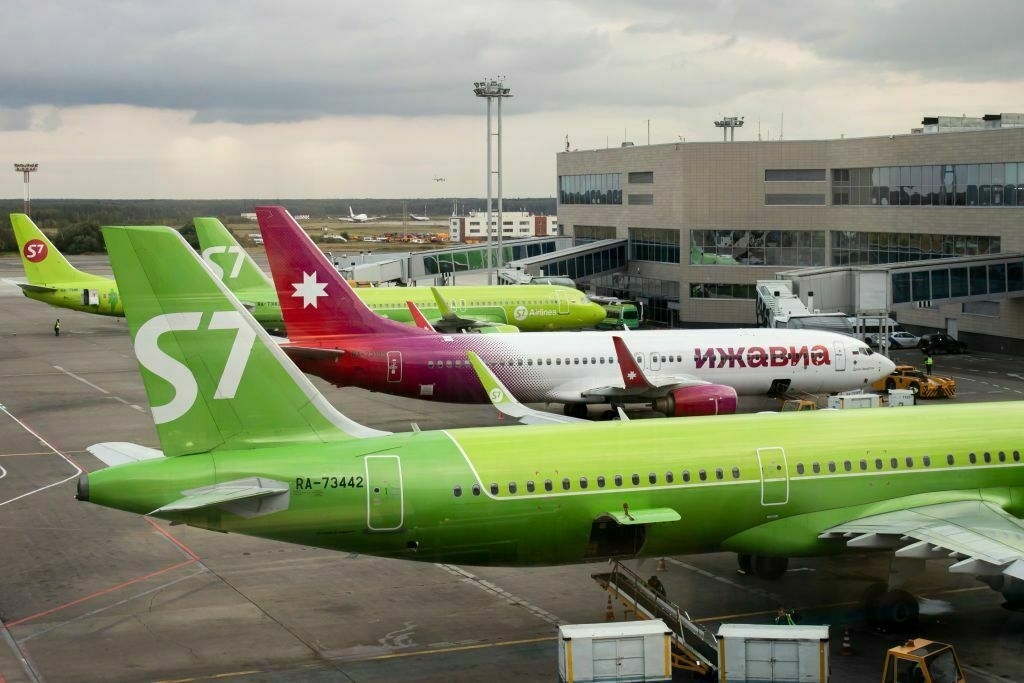
-
Ukraine war latest: Russian airports cancel nearly 300 flights amid drone attacks on Russia
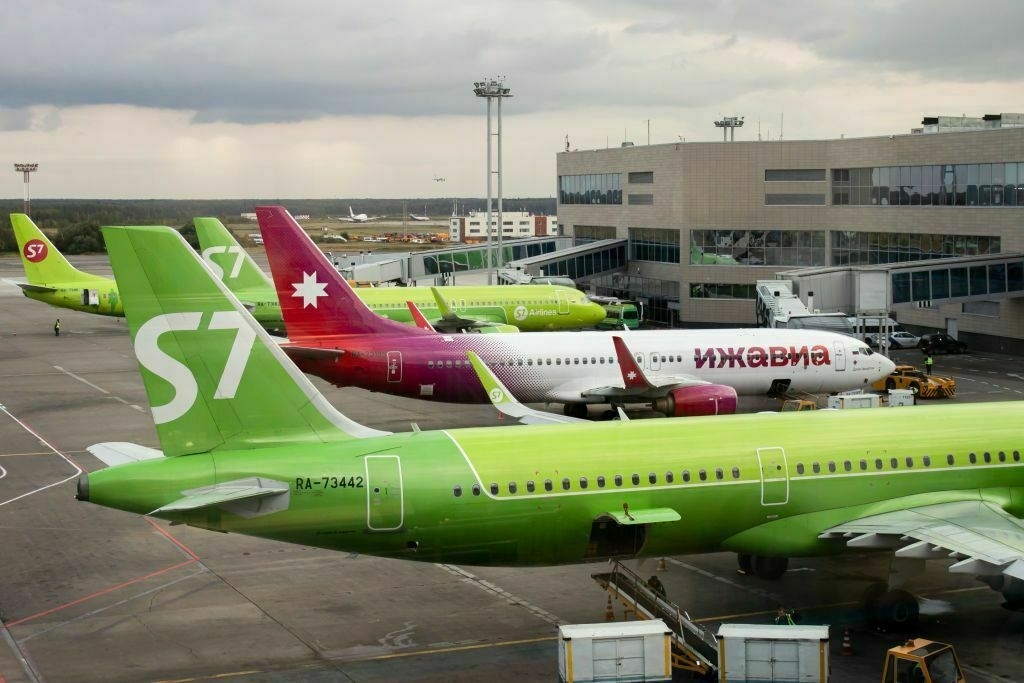
Key developments on July 7:
- Russian airports cancel nearly 300 flights amid drone attacks on Russia
- BRICS summit statement condemns attacks on Russian railways, avoids urging Russia to cease war efforts in Ukraine
- Ukrainian drone strike hits major oil refinery in Russia’s Krasnodar Krai, HUR source claims
- Ukraine confirms drone strike on Russian chemical plant near Moscow
- Russia strikes conscription offices in Kharkiv and Zaporizhzhia, Ukraine says
Several Russian airports have canceled flights due to safety concerns over Ukrainian drone attacks, the Russian Federal Aviation Agency (Rosaviatsia) reported on July 6.
Rosaviatsia reported on the evening of July 6 that 287 flights had been grounded across three major airports: Moscow’s Sheremetyevo, St. Petersburg’s Pulkovo, and Strigino Airport in Nizhny Novgorod.
The restrictions follow a wave of closures the previous night, also triggered by drone threats. Russia’s Defense Ministry claimed that it had intercepted 120 drones on Russian territory overnight between July 5 and July 6.
Ukraine hasn’t commented on the report. Kyiv’s drone campaign, which has increasingly disrupted civilian air travel in Russia, is part of Ukraine’s broader strategy to undermine Russia’s logistics far beyond the front line.
Rosaviatsia confirmed the temporary pause in flights at Moscow’s Sheremetyevo airport, citing airspace restrictions over the capital and strong winds. At Sheremetyevo, 171 flights were canceled and 56 more were delayed, causing crowds of passengers to form at the airport.
At Pulkovo, 90 flights were canceled and 37 remain delayed due to safety concerns. In Nizhny Novgorod, 26 flights were canceled and 13 delayed. Flight restrictions have also been imposed on Russia’s Ivanovo, Kaluga, Pskov, and Tambov airports, the agency said.
BRICS summit statement condemns attacks on Russian railways, avoids urging Russia to cease war efforts in UkraineBRICS summit participants condemned recent attacks on Russia’s railway infrastructure, according to a joint declaration on July 6 from Rio de Janeiro.
“We condemn in the strongest possible terms the attacks on bridges and railway infrastructure deliberately targeting civilians in the Bryansk, Kursk and Voronezh regions of the Russian Federation on May 31, and June 1 and 5 2025, which resulted in the deaths of several civilians, including children,” the document says.
Bryansk, Kursk, and Voronezh oblasts are all located near Ukraine’s northeastern border and have played a central role in Russia’s war effort, serving as key logistical hubs and launch sites for missile and drone attacks on Ukrainian cities, often targeting civilian infrastructure and causing casualties.
In their declaration, BRICS leaders also called for a negotiated peace agreement between Russia and Ukraine.
“We recall our national positions concerning the conflict in Ukraine as expressed in the appropriate forum, including the UN Security Council and the UN General Assembly,” the document said. “We expect that current efforts will lead to a sustainable peace settlement.”
‘Neither side wasted time’ — Ukraine’s economy minister on minerals deal negotiations with Trump’s ‘business-oriented’ administrationUkraine’s Economy Minister Yuliia Svyrydenko says her task is simple — to get the investment fund behind the closely watched minerals deal with the U.S. off the ground, and prove its detractors wrong. “There are so many criticisms from different parties that this fund is just a piece of paper we can put on the shelves — that it won’t be operational,” Svyrydenko, who is also Ukraine’s first deputy prime minister, tells the Kyiv Independent at Ukraine’s Cabinet of Ministers on July 4, the morning The Kyiv IndependentLiliane Bivings
The Kyiv IndependentLiliane Bivings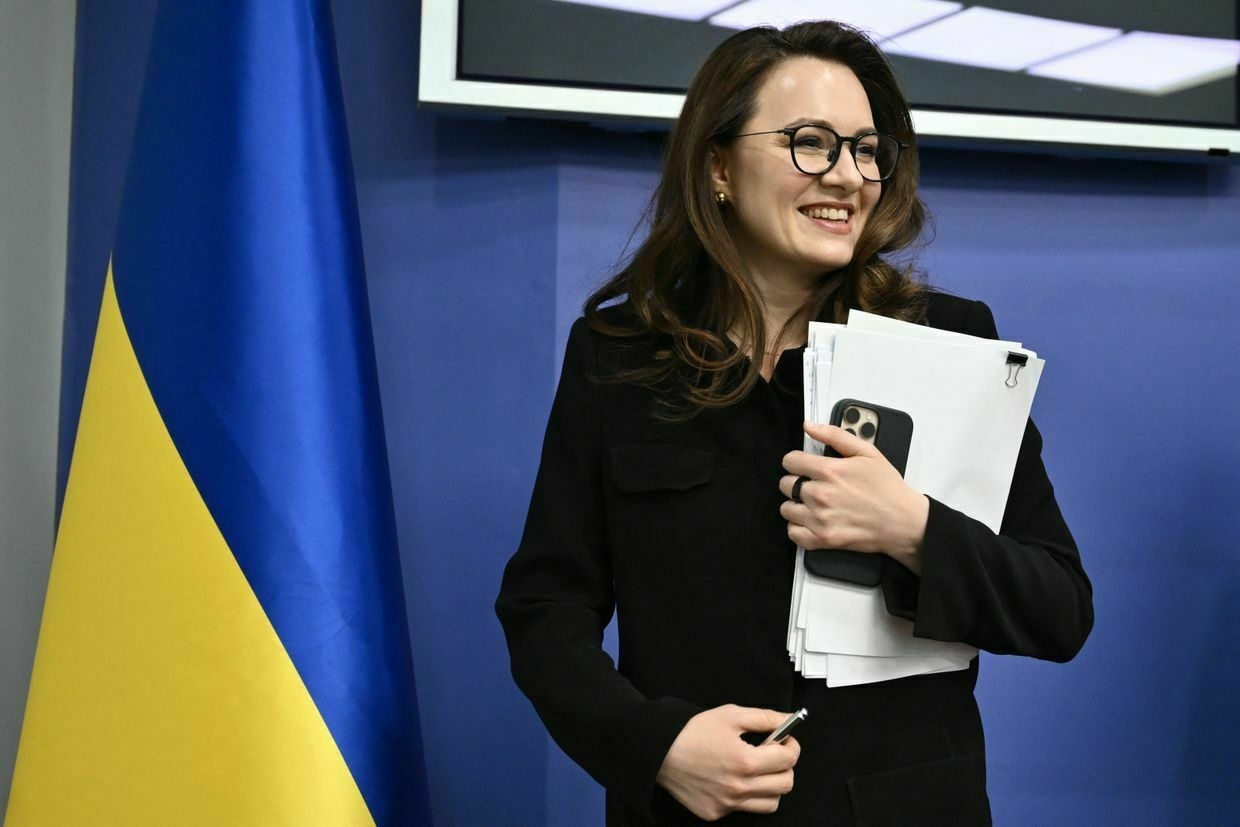
Ukrainian drone strike hits major oil refinery in Russia’s Krasnodar Krai, HUR source claimsLong-range Ukrainian drones struck the Ilsky oil refinery in Russia’s Krasnodar Krai on July 7, hitting one of the facility’s technological workshops, a source in Ukraine’s military intelligence (HUR) told the Kyiv Independent.
Located roughly 500 kilometers (311 miles) from Ukrainian-controlled territory, the refinery is among the largest in southern Russia, producing over 6 million tons of fuel annually.
It is involved in the reception, storage, and processing of hydrocarbons and distributes refined products via road and rail. The refinery is part of Russia’s military-industrial complex and plays a direct role in supporting Moscow’s war effort, the source said.
The Russian regional operational headquarters claimed that “drone debris” fell on the oil refinery.
The strike marks a renewed wave of Ukrainian attacks on Russian oil infrastructure, following a months-long pause. On July 1, Ukrainian drones struck the Saratovorgsintez oil refinery in Russia’s Saratov Oblast.
War has changed: Ukraine’s tech pioneers are leading the fight West can’t afford to ignoreThe next conflict isn’t coming — it’s already being fought in Ukraine. Not by NATO generals in simulated exercises, but by small, underfunded teams of Ukrainian innovators building the future of warfare with laptops, soldering irons, and scraps of carbon fiber. Ukraine is rewriting the rules of modern ground conflict — and unless we understand and invest in that transformation, Ukraine won’t get the defense funding it needs, whilst NATO nations will be left dangerously exposed. Only two countr The Kyiv IndependentRobert Seely
The Kyiv IndependentRobert Seely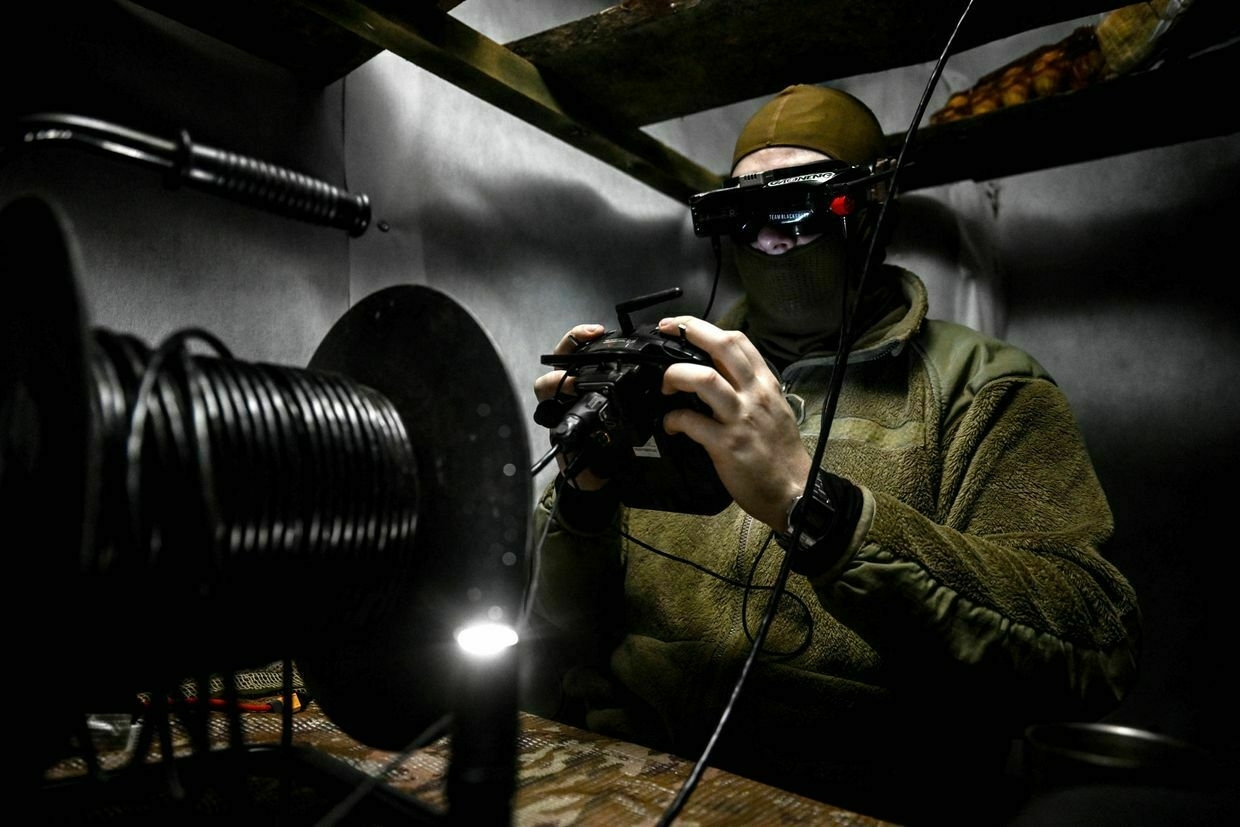
Ukraine confirms drone strike on Russian chemical plant near MoscowUkraine’s military confirmed on July 7 that it targeted a chemical plant in Russia’s Moscow Oblast used for producing ammunition and explosives, the General Staff said.
The plant, located 88 kilometers (55 miles) northeast of Moscow, produces industrial and military-grade chemicals, including explosives, ammunition components, and aircraft protection systems.
Established in 1915, the plant is one of the city’s largest employers and plays a key role in Russia’s defense-industrial complex. Its location in Krasnozavodsk places it roughly 530 kilometers (329 miles) from the Ukrainian border.
It is affiliated with the Russian state defense conglomerate Rostec and supplies the Defense Ministry, Interior Ministry, Federal Security Service (FSB), and other law enforcement agencies.
Moscow Oblast authorities have not officially confirmed the attack. Russia’s Defense Ministry claimed that air defenses intercepted or destroyed 91 Ukrainian drones across multiple regions, including eight over Moscow Oblast.
In a statement released later on July 7, Ukraine’s General Staff confirmed that units from its Unmanned Systems Forces, in coordination with other elements of the Defense Forces, carried out a precision strike against the Krasnozavodsk Chemical Plant.
Zelensky, Trump discussed replacement of Ukraine’s US ambassador, source saysOksana Markarova has held the post since April 2021, and played a central role in coordinating U.S. military and financial support during the early phases of Russia’s full-scale invasion. The Kyiv IndependentTim Zadorozhnyy
The Kyiv IndependentTim Zadorozhnyy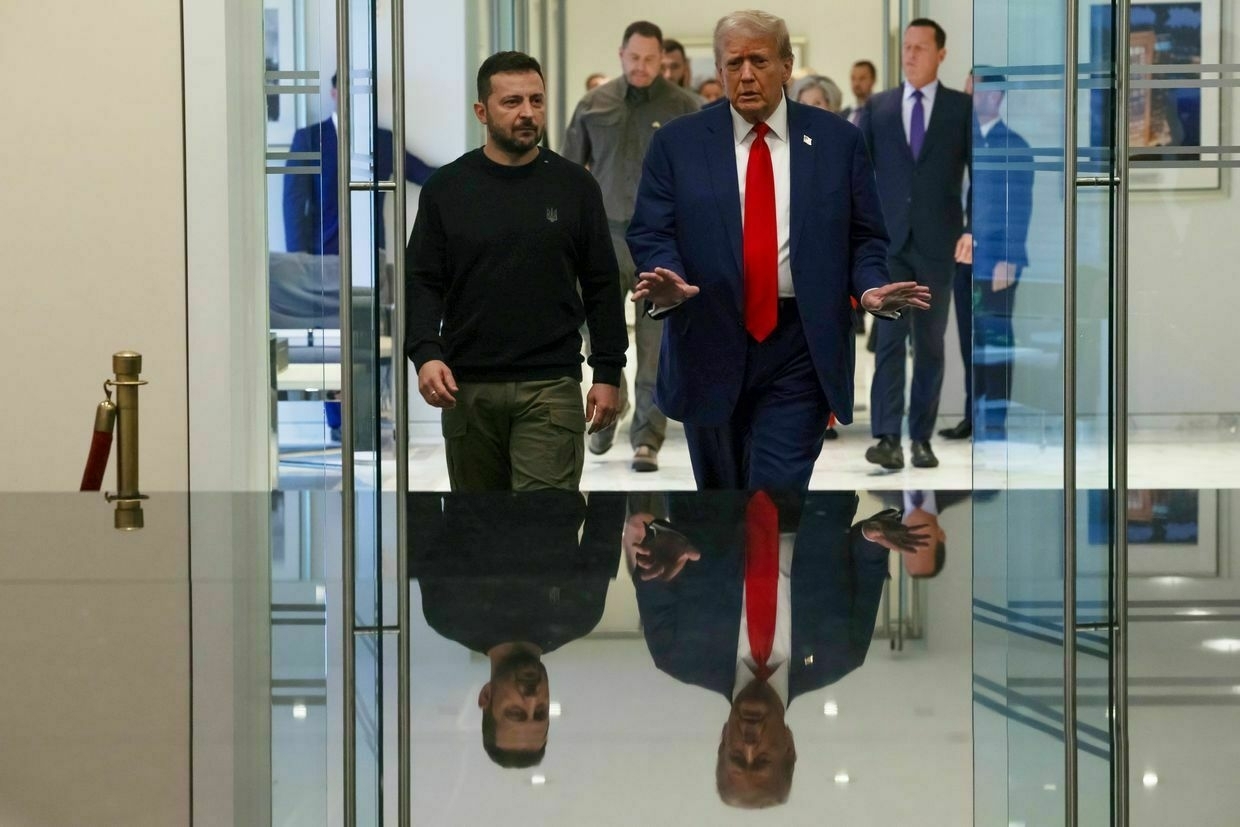
Russia strikes conscription offices in Kharkiv and Zaporizhzhia, Ukraine saysRussian drones struck Ukrainian conscription offices in the cities of Kharkiv and Zaporizhzhia early on July 7, injuring several people and damaging military infrastructure, Ukraine’s Ground Forces said.
The attack comes as Russia increases its efforts to disrupt mobilization in Ukraine.
“As a result of the attack, (Russian) drones hit the building of the Kharkiv conscription office and the surrounding area, as well as near the Zaporizhzhia conscription office,” the Ground Forces said.
Three people were reported injured in Kharkiv, while one soldier was wounded in Zaporizhzhia. State emergency service are working at both scenes, and casualty figures may be updated as the response continues, officials said.
The strikes are the latest in what Ukrainian military officials describe as a deliberate Russian campaign to target enlistment infrastructure and undermine mobilization efforts.
On July 3, a deadly Russian strike on the central city of Poltava killed two people and injured 47 others. The attack caused a fire at the city’s military conscription office and heavily damaged nearby civilian buildings, including civilian houses.
Note from the author:
Ukraine War Latest is put together by the Kyiv Independent news desk team, who keep you informed 24 hours a day, seven days a week. If you value our work and want to ensure we have the resources to continue, join the Kyiv Independent community.
-
EBRD to unlock $1 billion in credit for Ukraine's key sectors, considers mineral projects
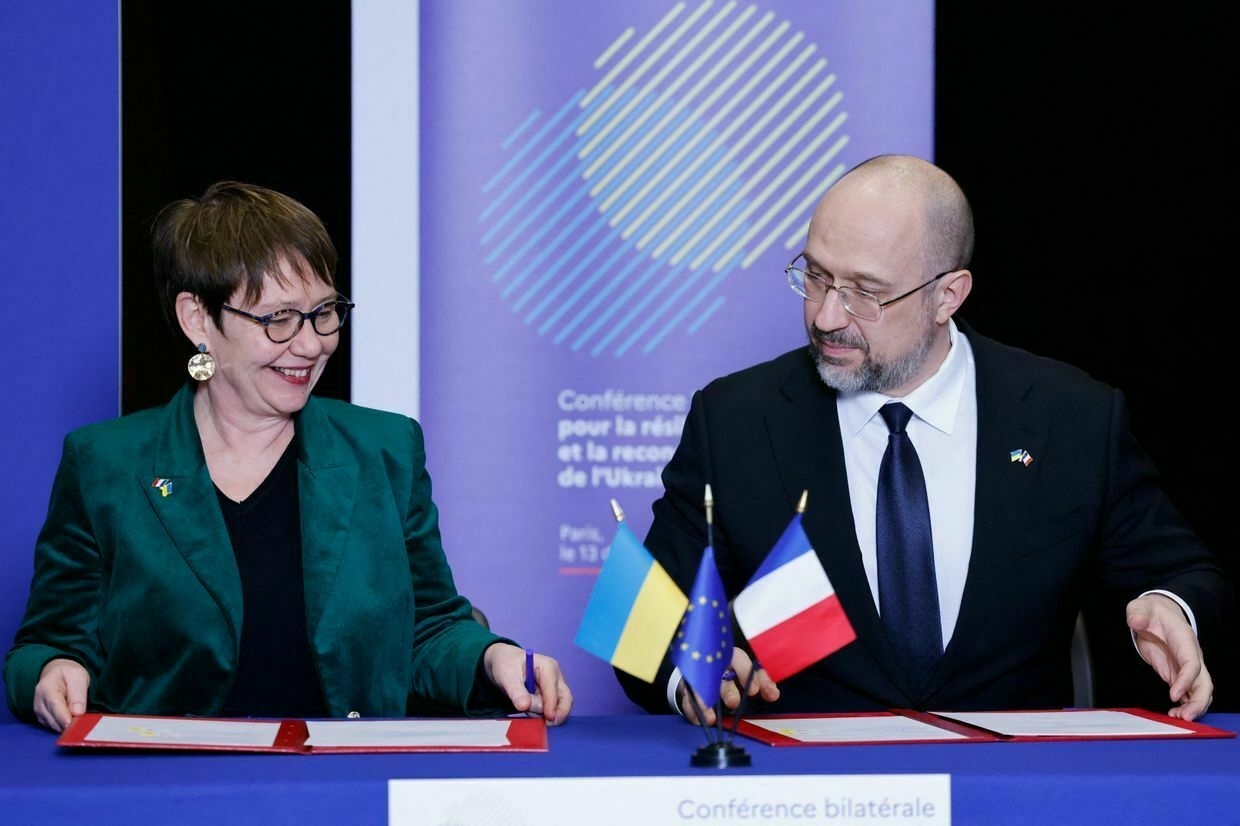
The European Bank for Reconstruction and Development (EBRD) will enable Ukrainian banks to provide up to 900 million euros ($1.05 billion) in new loans by sharing credit risks, the EBRD announced in a press release on July 7.
The loans will target companies in agribusiness, manufacturing, pharmaceuticals, transport and logistics, as well as energy security projects.
The mechanism will be announced at the Ukraine Recovery Conference (URC) in Rome on July 10-11. This represents the largest risk-sharing facility implemented in Ukraine since the war began, according to the EBRD’s press release.
Due to destructive Russian attacks on Ukrainian energy infrastructure, the EBRD will also focus on supporting distributed generation and renewable energy projects.
Russian forces have damaged most of Ukraine’s thermal power plants and about 30% of power stations, disrupting nearly two-thirds of the country’s total electricity generation, the bank says.
The EU, together with other EBRD donors, has developed plans to de-risk renewable energy investments to attract more private capital, which they will announce at the URC.
Nearly one-third of EBRD’s wartime financing to Ukraine — 2.4 billion euros ($2.8 billion) — has gone to the energy sector. This includes support for state-owned electricity transmission and gas companies, as well as financing for hydropower and small-scale distributed generation.
In a pre-URC press release, the EBRD also expressed interest in supporting the development of a natural graphite deposit in Ukraine following the U.S.-Ukraine minerals agreement. Graphite is a strategic material used in batteries and defense applications.
The bank will launch the second phase of digitizing Ukraine’s paper-based geological data archive to make information about mineral deposits more accessible, the EBRD reports.
Since Russia’s full-scale invasion in 2022, the EBRD has invested over 7.2 billion euros ($8.4 billion) in Ukraine’s economy.
Zelensky, Trump discussed replacement of Ukraine’s US ambassador, source saysOksana Markarova has held the post since April 2021, and played a central role in coordinating U.S. military and financial support during the early phases of Russia’s full-scale invasion. The Kyiv IndependentTim Zadorozhnyy
The Kyiv IndependentTim Zadorozhnyy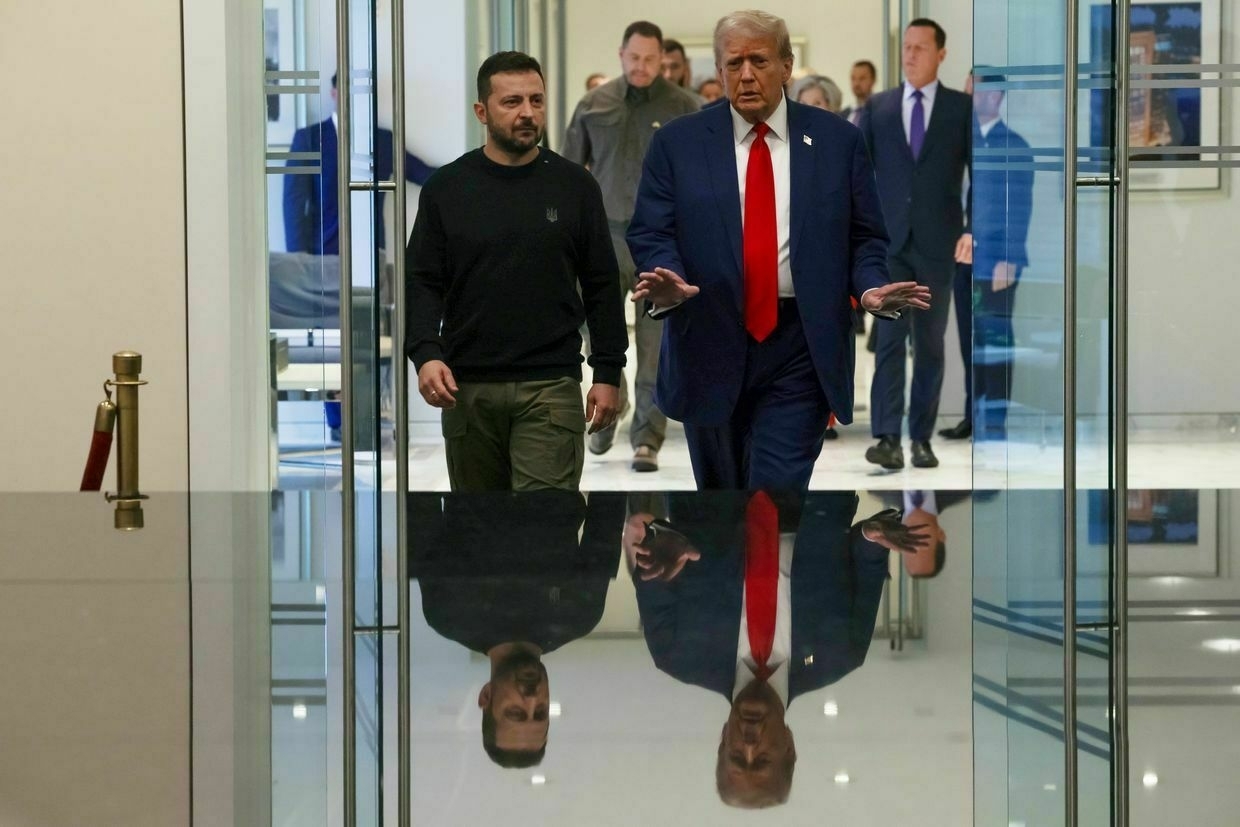
-
Exclusive: Ukraine pitches deepwater gas, oil refinery projects to US under landmark minerals deal
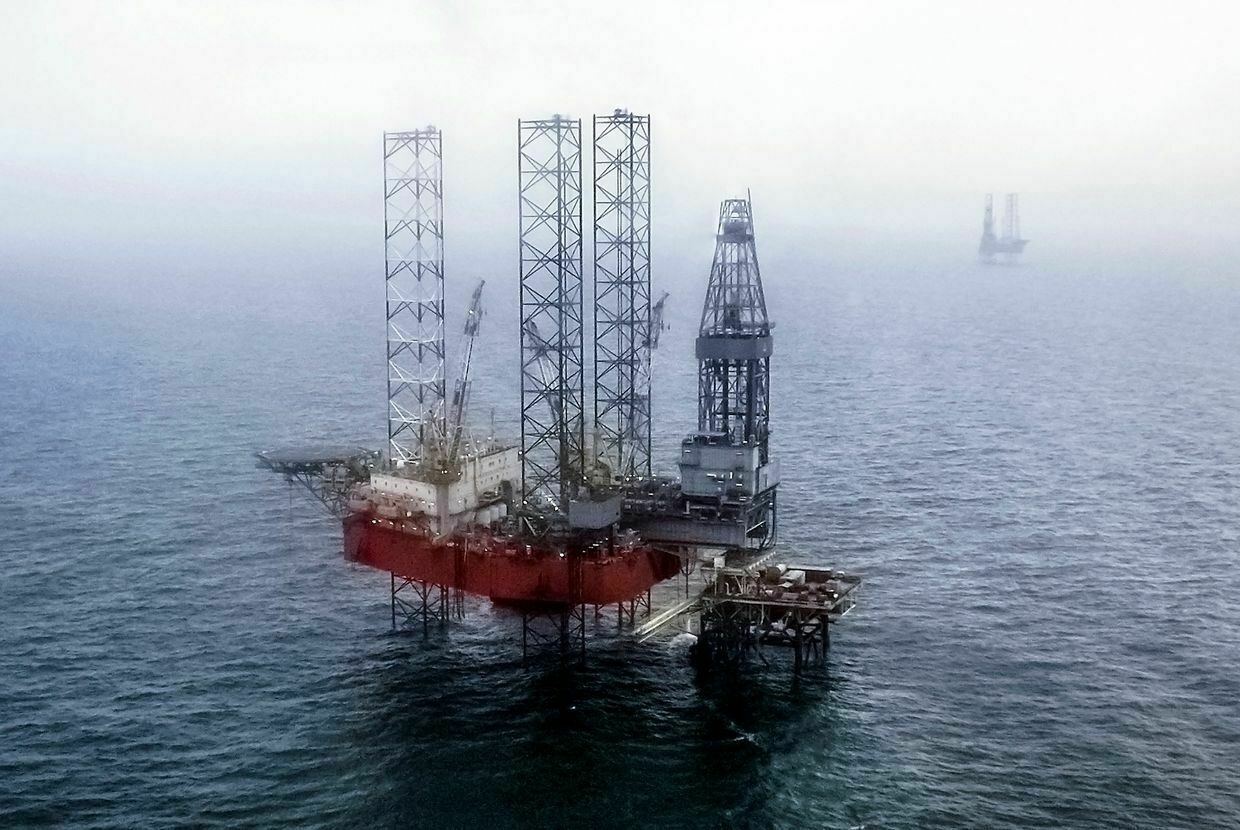
Projects Kyiv has submitted to the U.S. for consideration as part of a profit-sharing deal for Ukraine’s resources include a shelf and deepwater project and an oil refinery that comes under frequent attack by Russia, Ukraine’s Economy Minister Yuliia Svyrydenko told the Kyiv Independent in an interview published on July 7.
After months of hard-fought negotiations around the investment agreement — known more widely as the “minerals deal” for its focus on Ukraine’s critical minerals — the two sides signed the deal at the end of April. In addition to minerals, the investment fund created under the deal could finance projects in oil and gas, infrastructure, and, as was recently announced, defense.
Since the signing, Svyrydenko’s ministry has been working with the fund’s U.S. partners — U.S. Treasury Secretary Scott Bessent and the International Development Finance Corporation (DFC) — to get initial projects off the ground.
The minister recently announced that the fund’s pilot project would be the development of a lithium deposit in Dobra, in Ukraine’s Kirovohrad Oblast.
But Kyiv is also pitching more projects, including an offshore gas exploration project involving Ukraine’s state-owned oil and gas giant Naftogaz, and a plan to modernize the Kremenchuk oil refinery — the country’s largest petroleum production site, located in Poltava Oblast. The oil refinery is owned and operated by Ukraine’s largest oil company, the state-owned Ukrnafta.
With Ukraine’s massive domestic market for petroleum products, Svyrydenko called the refinery project “strategic and extremely important.” The ministry submitted the $2.7 billion project to the DFC and is awaiting feedback.
“It’s an important project for us, and it’s bankable,” she said in the interview.
The refinery in Kremenchuk is a frequent target of Russian missile and drone attacks. When asked whether Kyiv would discuss air defense with the U.S. if the DFC moved forward with the project, Svyrydenko said there’s currently “nothing about air defense in this project,” but noted that “U.S. companies that may participate in project implementation can have a strong voice and appeal to the U.S. government."
On July 1, Politico reported that the U.S. Defense Department had paused some promised air defense and weapons shipments to Ukraine, citing concerns about depleting American stockpiles. U.S. President Donald Trump later said the U.S. “might” send Patriot systems to Ukraine.
A day later, on July 2, Ukrainian President Volodymyr Zelensky and the Economy Ministry met with U.S. companies operating in Ukraine to discuss the urgent need for additional air defenses to protect businesses and cities.
“We understand that if there is U.S. investment in the country, there’s more motivation for the U.S. to protect (those assets),” Svyrydenko said.
Kyiv hopes to implement the first three projects under the agreement over the next 18 months and plans to hold the fund’s first official meeting at the end of July, in Kyiv.
“It’s extremely important for our partners, for our investors, to be in the country — to see how the country operates during wartime, to see that we’re still fighting and still working,” Svyrydenko said.
‘If it were a bad deal, I wouldn’t have signed it’ — Ukraine’s economy minister on negotiating US minerals deal in exclusive interviewUkraine’s Economy Minister Yuliia Svyrydenko says her task is simple — to get the investment fund behind the closely watched minerals deal with the U.S. off the ground, and prove its detractors wrong. “There are so many criticisms from different parties that this fund is just a piece of paper we can put on the shelves — that it won’t be operational,” Svyrydenko, who is also Ukraine’s first deputy prime minister, tells the Kyiv Independent at Ukraine’s Cabinet of Ministers on July 4, the morning The Kyiv IndependentLiliane Bivings
The Kyiv IndependentLiliane Bivings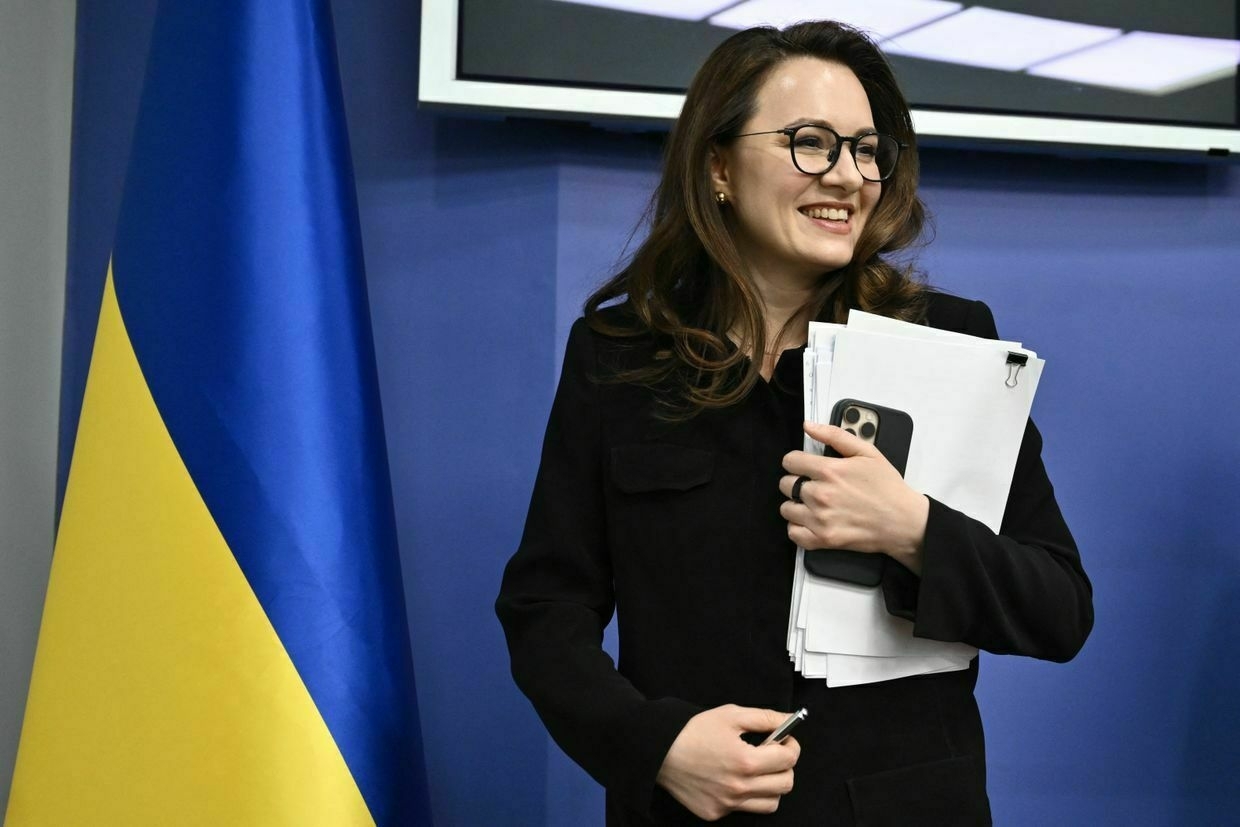
-
'If it were a bad deal, I wouldn’t have signed it' — Ukraine’s economy minister on negotiating US minerals deal in exclusive interview
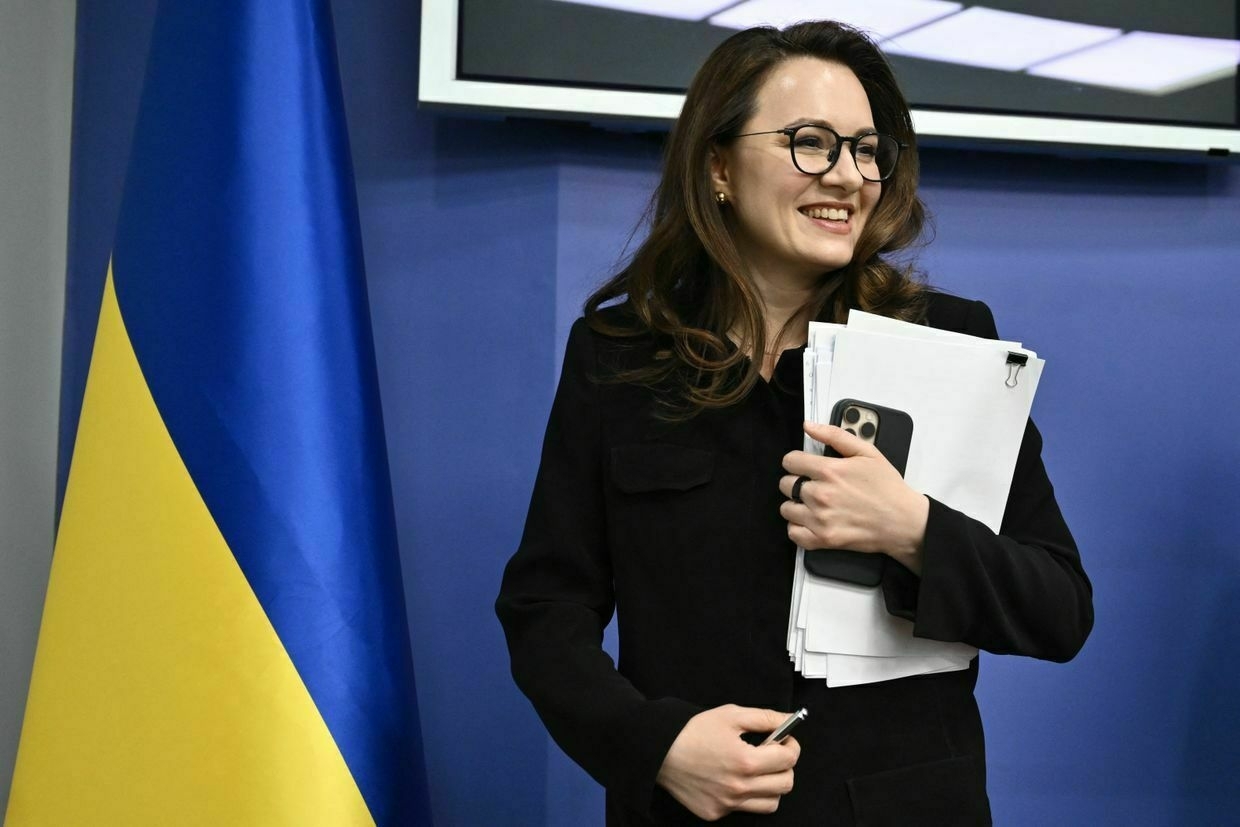
Ukraine’s Economy Minister Yuliia Svyrydenko says her task is simple — to get the investment fund behind the closely watched minerals deal with the U.S. off the ground, and prove its detractors wrong.
“There are so many criticisms from different parties that this fund is just a piece of paper we can put on the shelves — that it won’t be operational,” Svyrydenko, who is also Ukraine’s first deputy prime minister, tells the Kyiv Independent at Ukraine’s Cabinet of Ministers on July 4, the morning after Russia’s largest attack on Kyiv since the start of the full-scale invasion.
After months of fraught, drawn-out negotiations between Ukraine and U.S. President Donald Trump’s administration — including the infamous Oval Office showdown — that task may seem like an easy feat. But turning the deal’s vision of billions in investment into reality, in a country still fighting off Russia’s now more than three-year-long invasion, is another story.
Public distrust of the agreement has lingered since it was signed in late April. And more recently, reports emerged that Trump’s administration halted a shipment of military aid to Ukraine — including air defense missiles critical to protecting civilians, cities, and infrastructure — fueling doubts about whether investors will follow through amid such high risk.
But Svyrydenko remains confident that the more U.S. investment in the country, the more motivation there is for the U.S. to protect these assets. The minerals deal is just one tool at Kyiv’s disposal to keep the U.S. interested in supporting Ukraine’s war effort, according to Svyrydenko.
“We need to use all tools to engage with the U.S.,” she says.
Whether the U.S. and the Trump administration are as invested in making the deal operational as Svyrydenko and her team are will become clear over the next year and half — the time frame the minister has given herself for getting the first three projects with the fund kicked off.
The Kyiv Independent sat down with Economy Minister Yuliia Svyrydenko and her deputies, Taras Kachka and Oleksiy Sobolev, for an in-depth discussion on the minerals deal — its origins, key details, and what lies ahead as the team prepares to deliver on an entirely new way of doing business between countries.
This interview has been edited for clarity.
The Kyiv Independent: Despite being one of the most covered topics of the last more than three years of Russia’s full-scale invasion, the minerals deal still remains a bit of a mystery to the general public. How would you describe the deal in simple terms? An elevator pitch, if you will.
Yuliia Svyrydenko: First of all, you need to name it properly — everyone refers to it as the mineral deal, but it’s actually an agreement on launching an investment fund based on contributions from the Ukrainian and U.S. sides. There were many myths about the fund, one being that it would repay U.S. aid from the first year of the full-scale invasion, but there is nothing about debt in the deal; it’s about new investments.
Ukraine will contribute 50% of revenues from license and royalty payments from new deposits and new licenses. The U.S. side can contribute financially or through defense support. The fund will invest in projects in Ukraine related to critical minerals, oil and gas, and related infrastructure. It has to operate for 10 years before dividends are divided between both sides. For investors who obtain licenses and are looking for investment, they have to apply for the fund first and provide the terms and conditions for receiving financing. After applying, they can go to the global market. The fund will have six managers — three from each side — and is now exploring investment opportunities.
I hope that we will have the first official meeting of this fund at the end of July in Kyiv. It’s extremely important for our partners, for our investors, to be in the country — to see how the country operates during wartime, to see that we’re still fighting and still working. At our final meeting with (U.S. Treasury) Secretary (Scott) Bessent in Canada during the G7 meeting, we also discussed the possibility of using the fund to finance defense projects. The U.S. is considering it, but it depends on the quality of projects and if they’re bankable or not.
The Kyiv Independent: So it’s possible within the structure of this fund to finance defense projects?
Yuliia Svyrydenko: Yes. The structure of this fund is absolutely unique. It’s also new for our bilateral relations because it’s a long-term fund and (the U.S.) is looking for long-term cooperation with Ukraine. We’re really proud of it. We want to keep the U.S. as a strategic partner. We understand the U.S.’s pragmatic approach — there are no security guarantees in the fund, because it’s only about investment.
But we understand that if there is U.S. investment in the country, there’s more motivation for the U.S. to protect (these assets). Two days ago, our president met with U.S. companies operating in Ukraine. We discussed the need for anti-missile systems — Patriots — to protect companies and cities. We depend on the income that we generate from the private sector. This fund is also unique because it allows contributions in the form of defense support. That doesn’t mean military aid would go through the fund, but it’s an option.
The Kyiv Independent: Let’s talk about U.S. aid. What are your thoughts on the recent decision to temporarily halt some shipments of aid to Ukraine, especially air defense aid? Given that the Trump administration has not indicated plans for any new aid packages, and considering all the work you and your ministry have done to show that Ukraine is a reliable, long-term strategic partner, how frustrated are you by this news?
Yuliia Svyrydenko: I think, like all Ukrainians, I got this information from Politico and other media. We need to get official information first, but I really hope the U.S. will support Ukraine. We need the U.S. as a strategic partner. That’s why we believe in this fund. I think it’s one of the most effective working tracks we have with the U.S., where we can discuss our future cooperation. So let’s wait for the official statement from the U.S. side, and then we’ll reflect on it. (Editor’s note: After this interview was conducted, U.S. President Donald Trump said the U.S. “might” send Patriots to Ukraine.)
My task is very simple. I want to make this fund operational because there are so many criticisms from different parties that this fund is just a piece of paper we can put on the shelves, and it won’t be operational. We want to set up this fund and have this meeting (at the end of July) because we have already provided them with the list of projects.
Our idea is to start the implementation of at least three projects within the next 18 months. As I said, I do believe that (the Americans) are very pragmatic and very business-oriented. We are trying to describe ourselves as a country not looking for aid, but for investment. I think Ukraine can be a good business case.
The Kyiv Independent I’ll return to the question of the projects you want to implement, but first I’d like to go back to the beginning — the origins of this deal. Do you remember when you first heard about it, and what that initial conversation was like?
Yuliia Svyrydenko: I think it was in February. There were different people who submitted different types of documents related to this deal, but Secretary Bessent and his team were the most efficient. The negotiation involved huge teams from both sides, including professional lawyers. On the Ukrainian side, the Economy Ministry led the team, with participation from the Finance, Justice, Foreign Affairs, Energy, and Environmental Protection ministries, as the deal concerns critical raw materials. It was a very open negotiation. There’s a big difference when you hear public statements, and then move to the working track, and you understand that they are ready to listen, and they want a good deal.
The Kyiv Independent: Why do you think there’s that difference in what you hear publicly and what you hear when you’re communicating with them privately?
Yuliia Svyrydenko: I think at the beginning of President Trump’s term, everyone on his team wanted to bring a good deal to their president. That’s why they were competing with each other. But in the end, everybody understood that if it wasn’t a win-win for both parties, or if they kept talking about the debt, we wouldn’t get this deal. That’s why I think the team of Secretary Bessent was very constructive on the working level.
The Kyiv Independent: Let’s talk about the famous Oval Office meeting. You were there, sitting next to President Zelensky, when there was this heated moment with President Trump and Vice President Vance. What was going through your mind during that moment? What were you thinking as you sat there?
Yuliia Svyrydenko: It was very emotional. But during this meeting, the president was defending not himself, but Ukraine. He was very real during this meeting, as he always is. Our whole team supported him at that moment. I was proud of my president. If he had reacted differently, it probably would have disappointed not only me but all Ukrainians. I truly believe we are still here in Kyiv and keep fighting because of him. He wakes up every day and keeps fighting and working, despite not taking even one day off.
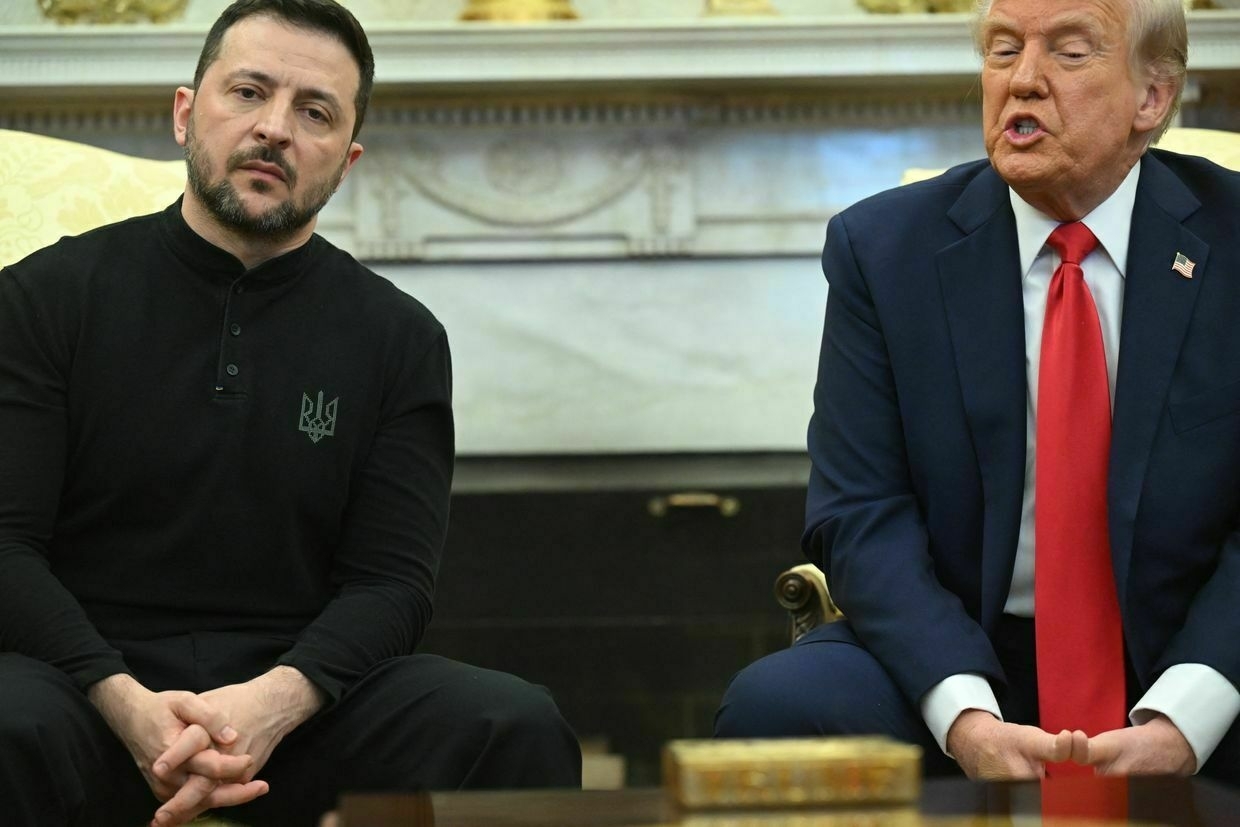
U.S. President Donald Trump and Ukraine’s President Volodymyr Zelensky meet in the Oval Office of the White House in Washington, D.C., Feb. 28, 2025. Zelensky and Trump openly clashed in the White House on Feb. 28 at a meeting where they were due to sign a deal on sharing Ukraine’s mineral riches and discuss a peace deal with Russia. (Saul Loeb/AFP via Getty Images) The Kyiv Independent: Of course, you, President Zelensky, and your team left without signing a memorandum of understanding on the minerals deal. What’s interesting to know is how you got it back on track. Could you reflect on how, after that tense moment, you came back to the table and restarted talks?
Yuliia Svyrydenko: The pause of one or two weeks gave us the opportunity to work on the text of the intergovernmental agreement. I think it’s good that neither side wasted time and kept working on the agreement. We returned to Secretary Bessent and his team and said, “Let’s try to renegotiate because we are ready and have some ideas."
The Kyiv Independent: And the response was positive?
Yulii Svyrydenko: Yes, the response was positive.
The Kyiv Independent: You mentioned that you first heard of the deal around February, but wasn’t some form of a deal like that presented as an option to the U.S. by the Ukrainian side earlier than that? A victory plan was presented at the end of last year, and it was mentioned as part of that plan, no?
Yuliia Svyrydenko: When we met for the first time, and we offered them this victory plan, one part of that was critical raw materials, but there were no details. The details were developed after the Oval Office meeting.
The Kyiv Independent: You said you heard about the deal in February for the first time. Weren’t you involved in the discussions and decision-making process when Ukraine was drafting the victory plan?
Yuliia Svyrydenko: Yes, I was (part of that).
The Kyiv Independent: It included a point about mineral resources. When you were doing that last year, is this (deal) what you had in mind?
Yuliia Svyrydenko: No. (Back then), there were different ideas on how it was going to be implemented. We didn’t think about an investment fund, but we were also thinking about projects that we could offer to the U.S. and looking for strategic partners and anchor investors for these projects. The idea of an investment fund was offered by Secretary Bessent; it was developed during the negotiations and we now see it as an interesting tool for attracting investment.
The Kyiv Independent: What would you rename the deal if you could rename it anything?
Yuliia Svyrydenko: I don’t think minerals deal is the right name because it’s not about extracting critical raw materials — it’s about seeking investment opportunities in Ukraine. That’s precisely why it’s an investment fund. The U.S. side also emphasizes that this is an economic recovery fund, not a minerals fund. The Americans themselves see it as broader.
The Kyiv Independent: Let’s go back to the current state of the deal. In February, things were difficult. But by late April or early May, the political agreement was signed, along with the fund agreement and other agreements. Projects are being prepared. What is happening currently, and what’s expected in the near future?
Svyrydenko: We are preparing the first meeting of the fund members to discuss the investment policy, the first contribution, and the seed money. We need to hire an investment advisor to help build the strategy. We are setting up a commission to look at critical mineral deposits, and we are currently working on a lithium deposit in Dobra — it is the first time we are considering implementing this project through a project share agreement. We also declassified the licenses and geological data to attract investment. The last reserves update was in the 1980s.
The Kyiv Independent: The first pilot project for the lithium deposit in Dobra — an American company participating is TechMet, right? What’s the timeline for that project?
Yuliia Svyrydenko: The timeline (for the deposit) is six months. Last week, we opened the contest, and next week, they should announce the terms and conditions of the Dobra deposit share product agreement — for us, it’s the first time (we’re doing a share product agreement for critical minerals). The winner of the product share agreement should be identified in six months' time, after which the winner can decide if they will operate (the deposits) on their own, or if they will apply to the fund to get financing, which is also optional.
If you want to extract lithium or titanium or enrich uranium, you don’t have to go directly to the fund and get finance. If you have your own financing and you can implement it on your own, please.
The Kyiv Independent: And the other projects you want to get going in the first 18 months?
Yuliia Svyrydenko: We have provided and submitted different projects to our U.S. partners. One of them is a shelf and deepwater project with (state-owned oil and gas giant) Naftogaz gas exploration. We are also looking at the Kremenchuk oil refinery. It’s a strategic project and extremely important for us because the CapEx is at least $2.7 billion.
The Kyiv Independent: But Russia attacks the oil refinery constantly.
Yuliia Svyrydenko: The market for the consumption of petroleum products in Ukraine is huge, which is why we want to focus on the modernization of the refinery. We submitted this project to the U.S. International Development Finance Corporation (DFC), and we are currently waiting for their feedback — it’s an important project for us, and it’s bankable.
The Kyiv Independent: Would there then be a conversation about air defense with the U.S. if the DFC were to move forward with this project — in order to protect it?
Yuliia Svyrydenko: There is nothing about air defense in this project, but U.S. companies that may participate in project implementation can have a strong voice and appeal to the U.S. government. If these are huge investment projects, I think it will help us have a stronger voice. We need to use all tools to engage with the U.S.
The Kyiv Independent: How effective do you think this argument could be for Trump, considering he is, after all, a businessman? The idea that American companies will be in Ukraine — how effective could that be as an argument to provide more air defense, among other things?
Yuliia Svyrydenko: I’m not sure it’s a key factor, but this administration is clearly business-oriented. It seems to me that a strong presence of American businesses in a region can increase motivation to provide air defense and military support. Of course, I’d like to believe that, as a country and strategic partner upholding democratic values and defending ourselves, we have an inherent right to receive or purchase such aid… but this business angle could serve as an additional argument.
The Kyiv Independent: During your talks with American partners, did they ask about resources in territories currently occupied by Russia? Is that part of the discussion? And if those territories are liberated, do the resources there automatically become part of this deal?
Yuliia Svyrydenko: The intergovernmental agreement states that the mineral deal covers the entire territory of Ukraine, without specifying that some areas are occupied — there were no specific questions about what is in the occupied territories, it wasn’t part of our negotiations. What they did ask was what we have now — what licenses are active, which companies are involved, and what they’re looking for. We showed them a schematic map illustrating the locations of major deposits, including the occupied areas, which we highlighted, but they understood that when we talk about projects that can be implemented now, they can start in places like Kirovohrad Oblast, where there are deposits of many minerals.
The Kyiv Independent: Do you think there’s a possibility that, in the future, the U.S., regardless of having partners here, might enter into a similar agreement with Russia and gain access to our resources in the occupied territories through Russia?
Taras Kachka: That’s not possible. That would mean legally recognizing the occupied territory as Russian territory. Anything beyond that — any kind of business deal — would be impossible. It’s simply not a viable scenario. No one, not even China, recognizes these territories as ones where legitimate business activity can take place. Maybe the occupying forces will install some equipment, extract something in some rough way, and then, as happens in other cases, try to pass it off as if it were produced somewhere like Rostov (Russia). It isn’t a question about the deal; it’s a question of recognizing those territories.
The Kyiv Independent: There was a lot of news about this specific village, Shevchenko, with lithium deposits that was recently occupied. What does it mean for the deal?
Taras Kachka: Yes, there are the facts (on the ground) that we are discussing, but it does not impact the fund or our cooperation. Other materials are situated in the occupied territories, but that didn’t impact the deal.
The Kyiv Independent: But does it have a PR impact? Because, of course, the news was very big, and people were framing it that way.
Taras Kachka: This is another element of a broader problem. There are fields with grain, minerals, and factories that have been destroyed. It’s the same story. While the war continues and new territories are occupied by the Russian Federation, the Ukrainian economy suffers. Ukraine as a state suffers. All our international cooperation suffers as well. That’s why the war must be stopped, the aggressor must leave our territory, and then we’ll be happy to do any projects on this territory.
The Kyiv Independent: There is no head of the DFC right now, as the person who has been appointed, Benjamin Black, is still awaiting confirmation by Congress. Does the absence of a head of the DFC complicate your work?
Yuliia Svyrydenko: No, it’s not a problem that there is no head right now. There’s an acting head of the DFC right now, and almost every week, we have a conference call with them to discuss the current situation.
The Kyiv Independent: So, about the two other agreements that were signed after the first political agreement was signed on April 30 that have not been made public and that are not going to be. What is so sensitive about them that they can’t be made public?
Yuliia Svyrydenko: The idea at the beginning was that the U.S. side wanted a commercial deal, which we said was impossible because the state is involved, so it can’t be fully commercial — that’s why it’s a mix of public and private. But the DFC insists that they are commercial deals, (so they can’t be) public.
After some documents leaked, there was gossip around the committee and how in the investment committee, the U.S. had three voices and Ukraine had only two voices. But the idea is that the fund has a board and (within that board) there are four committees: prospecting, investment, audit, and administrative. Since there are different numbers of voices in these committees, and there was talk of “betrayal.” But I think the most important thing is that all decisions discussed within these committees must be approved by the board, which consists of three members on each side.
Taras Kachka: A government-to-government agreement is a public law instrument; (the one the U.S. and Ukraine signed is) open and was ratified, so there are no questions — it’s law.
For the other two remaining elements they are commercial deals, classical commercial agreements, and the establishment of a limited liability company serving as a general partner of a limited partnership between a Ukrainian entity and a U.S. entity.
We dedicate a lot of time to working with the DFC on how to treat this information. There is a lot of legal thinking within these institutions on whether it should be fully published or only briefings, excerpts, etc. That’s why I think we continue this discussion. This is what limits our ability to publish openly. But we have nothing to hide.
Yuliia Svyrydenko: It’s also important to note that the intergovernmental agreement is the main agreement, while the other two serve to deepen it.
The Kyiv Independent: Can one of the parties, either the U.S. or Ukraine, withdraw from this agreement? Is that even technically possible? How can the agreement be terminated?
Oleksii Sobolev: The agreement stays in place until both parties agree to terminate the agreement. So no one side can just exit the deal.
Yuliia Svyrydenko: And every 10 years, both parties will review the feasibility of continuing the fund’s operations.
The Kyiv Independent: What happens if in 18 months the deals haven’t moved forward — what’s plan B?
Yuliia Svyrydenko: To keep working with Europeans. There’s a lot of interest from European countries — they’re also looking (at opportunities) and trying to set up different memoranda with us. Some of them want to help us with carrying out the geological survey, which is timely and costly. Critical raw materials will remain an important topic for the U.S. and Europe for decades. But we need to keep this working track with the U.S. active on many levels.
Oleksii Sobolev: But right now we have more than weekly communications with the DFC and Secretary Bessent’s people, who are pushing this forward.
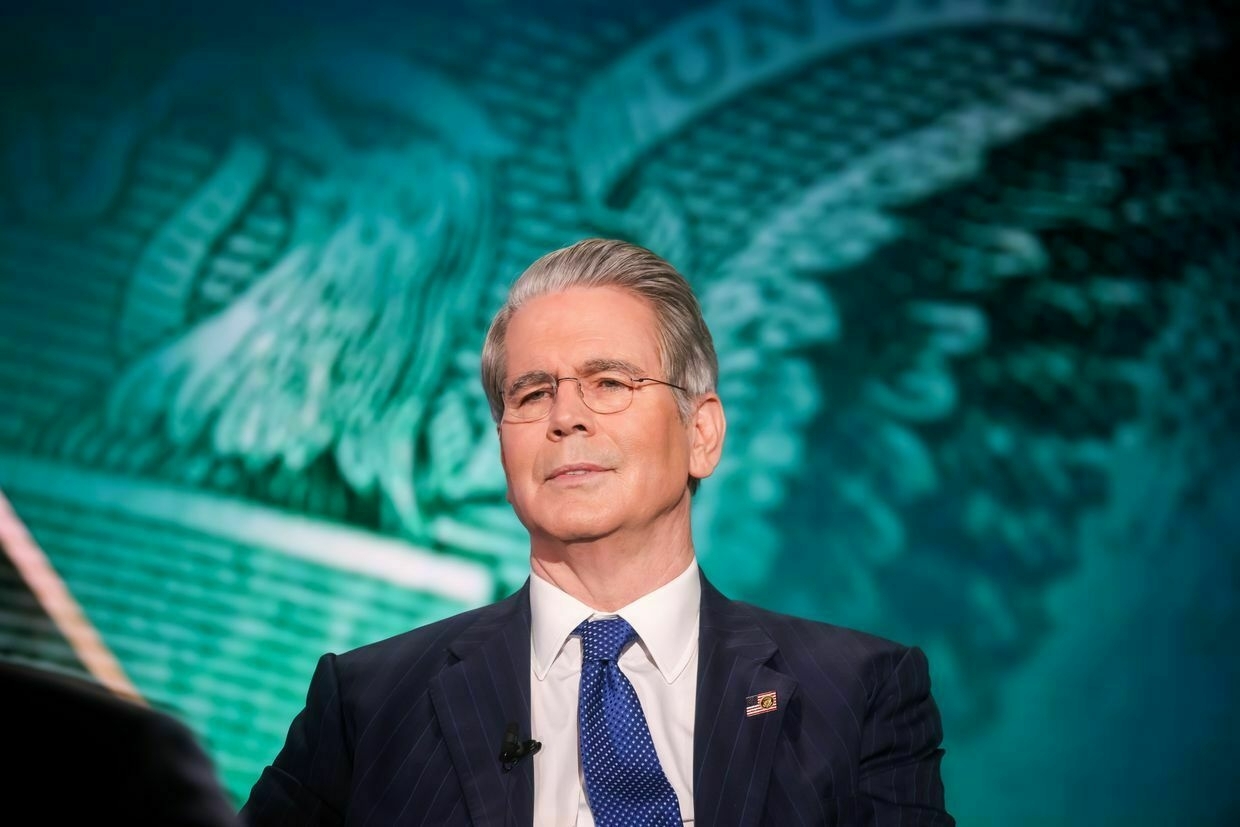
Scott Bessent, U.S. Treasury Secretary, during a Bloomberg Television interview in New York, U.S., on May 23, 2025. (Michael Nagle / Bloomberg via Getty Images The Kyiv Independent: Could road projects and road concession projects be part of this deal?
Yuliia Svyrydenko: So, actually, the interest in the governmental projects is critical raw materials, oil and gas, and related infrastructure, which likely means ports and, from our perspective, probably roads as well. We updated the PPP legislation and voted for it in the second reading a couple of weeks ago.
Oleksii Sobolev: But you need to differentiate (the different types of projects). The projects the fund could invest in are broader than those with offtake rights and investment opportunity rights. For example, critical minerals-related infrastructure projects or concessions in regions with uranium, like roads that help ship those products, will have investment opportunities. If a concession winner needs third-party financing, they should inform the fund. The fund could invest in any infrastructure, energy, or other projects.
The Kyiv Independent: There is also some confusion in the public as to whether new licenses for projects have to be presented to the fund. Is that the case?
Yuliia Svyrydenko: The fund does not participate in any tenders or auctions, nor in any privatization process. The idea is that if you want to obtain licenses, for example, for lithium extraction, you go through the ordinary tender procedure. Once you receive the license and realize you need financing for project implementation, you must provide the fund with information and the terms and conditions for attracting finance to your project.
If the fund is interested in the project or can bring in a third party to help with implementation, you cooperate with the fund and implement the project that way. But if the fund refuses your terms and conditions, you can seek financing from the global market, including IFIs or DFIs, as long as you do not offer better terms than those offered to the fund within six months. You can change the terms and conditions within those six months.
Getting a license is straightforward; if you want financing, you need to follow this process. The same applies to offtake: if you have a license and extract critical raw materials, you must first offer the offtake to the fund. If the fund refuses, you can sell on the global market at the market price.
Also, simply extending licenses does not mean license payments go to the fund, as it is a different procedure. There is a separate category for “sleeping licenses,” defined as licenses with less than 1% extraction for the past five years. If, during the five years, you have not implemented an approved program, meaning you’ve done nothing with the license, it is considered a new license.
The fund deals with income from new licenses and new production sharing agreements — 50% of the budget revenues that Ukraine receives go to the fund as the Ukrainian contribution. Based on current licenses, if the fund had been set up in 2019, the Ukrainian contribution would be Hr 3 billion — which is quite small.
Critical materials projects usually cost no less than $500 million, so we definitely need US contributions because it shows their serious intention to work with Ukraine and do business here.
We expect to receive the first seed money by the end of September. About $25 million for procedures. After that, we will see what the next contributions from both sides will be.
The Kyiv Independent: Among our Kyiv Independent audience in the West, there’s sometimes a sense that this deal is bad for Ukraine. We even received emails urging Ukraine not to sign, saying the Trump administration was trying to take advantage of Ukraine. As a Ukrainian and one of the lead negotiators, how would you respond to that?
Yuliia Svyrydenko: If it were a bad deal, I wouldn’t have signed it. The version we signed is much better than what we received during our first meeting because there is nothing about debt. Both sides will manage, co-finance, and co-own this fund. The fund will invest in Ukrainian projects on Ukrainian territory.
We have losses assessed at $500 billion by the World Bank, and in the first year of the large-scale invasion, our GDP declined by 30%; in the second year, it grew by 5%. This year, we also expect growth, but this growth has not allowed us to make a huge jump. That’s why we need tools to help attract money. Of course, we need the U.S. as our partner in this fight. All of us understand that perfectly well. So I think this is a good working track that allows us to keep negotiating with the U.S. and provide them with the most beneficial projects.
The Kyiv Independent: Are you confident that the US will remain a strategic partner to Ukraine in the next year or two years, three years during the Trump administration?
Yuliia Svyrydenko: I think that they will be our strategic partner. I truly believe this.
Author’s note:
Hi there, busines editor Liliane Bivings here. Thanks for reading, I hope you enjoyed hearing directly from Ukraine’s Economy Minister Yuliia Svyrydenko. Our chief editor Olga Rudenko and I sat down with her and her team last week to discuss the famed U.S.-Ukraine minerals deal to try and clear up some of the mystery that’s formed around the agreement despite it being one of the most covered topics of this war. If you’d like to see more interviews like this, please consider joining our community to support independent journalism straight from Ukraine.
Zelensky, Trump discussed replacement of Ukraine’s US ambassador, source saysOksana Markarova has held the post since April 2021, and played a central role in coordinating U.S. military and financial support during the early phases of Russia’s full-scale invasion. The Kyiv IndependentTim Zadorozhnyy
The Kyiv IndependentTim Zadorozhnyy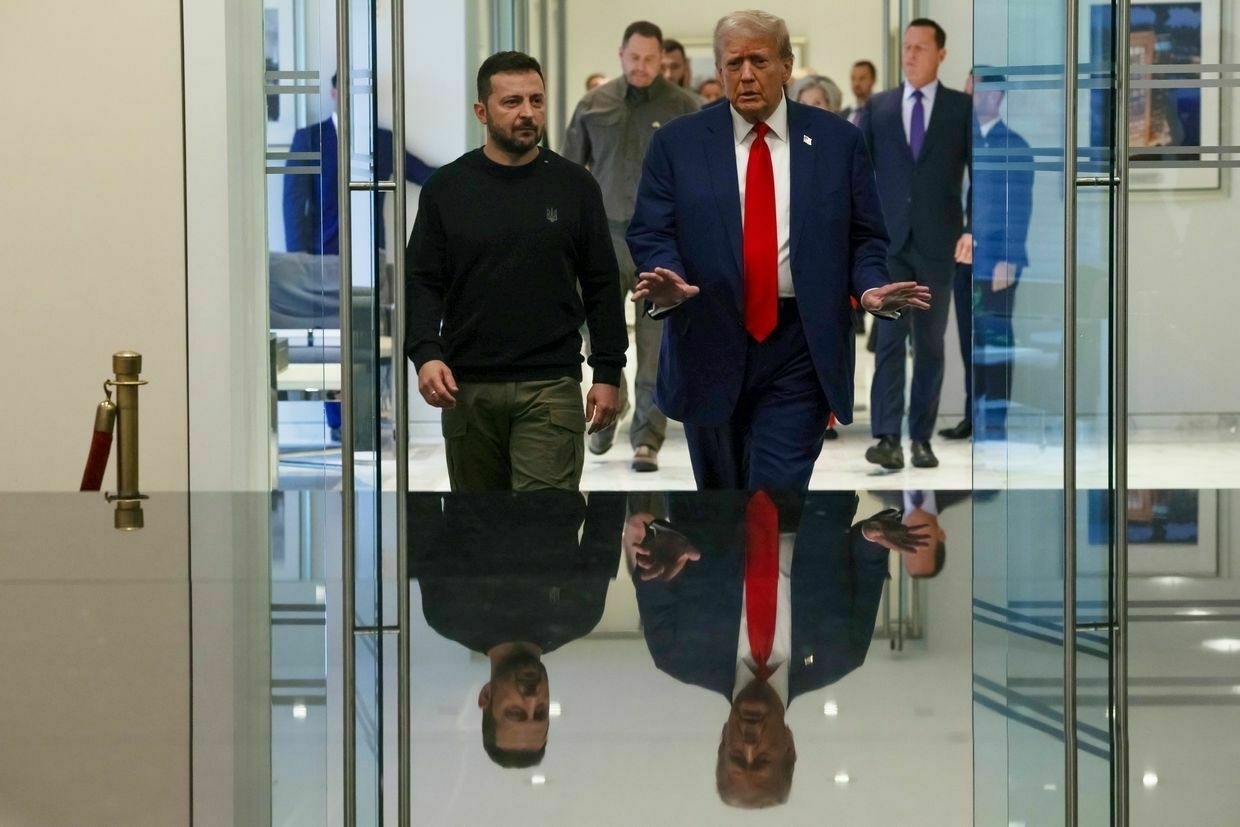
-
NATO caught with its 'pants down' if China, Russia try two-front war, experts say
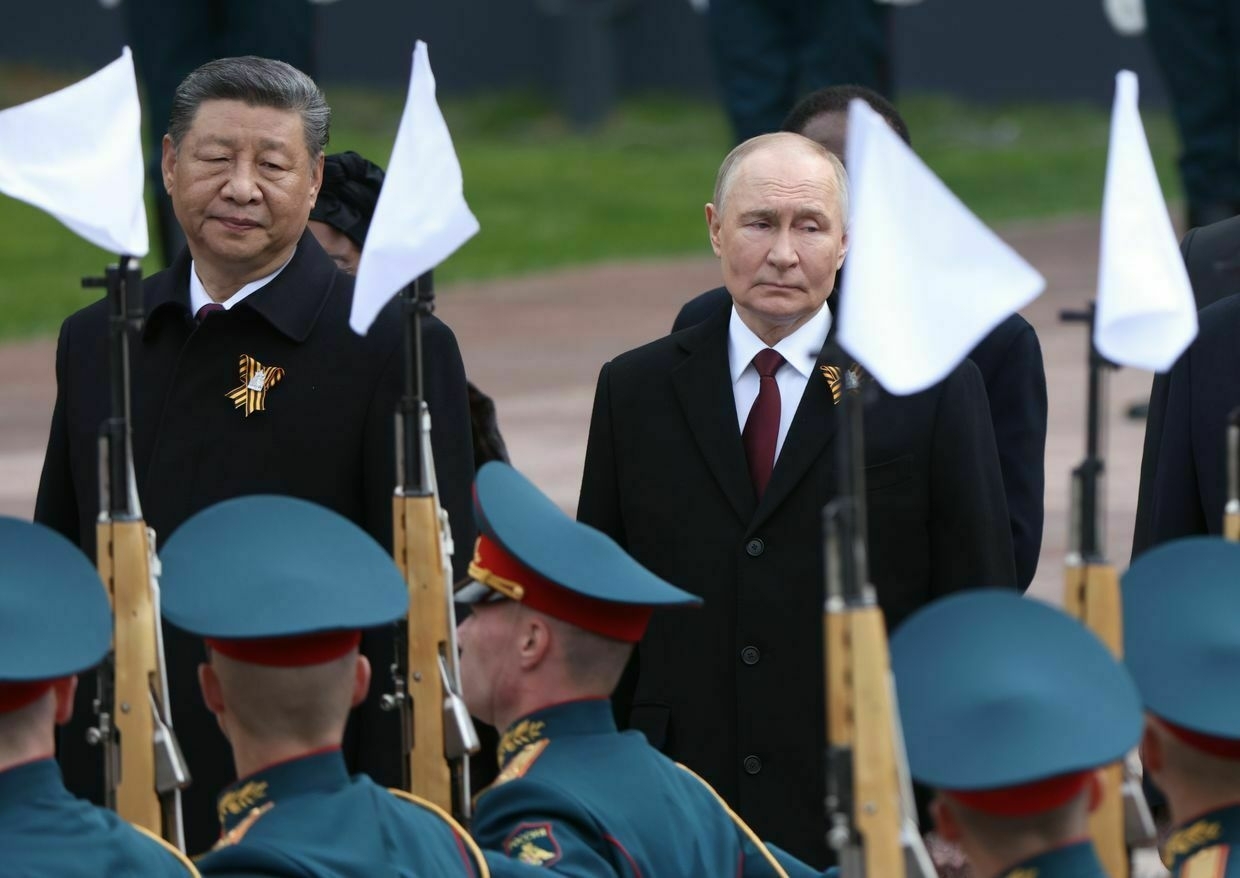
If Beijing moves against Taiwan, NATO might soon find itself in a two-front war with China and Russia — or so the alliance’s secretary general believes.
“If Xi Jinping would attack Taiwan, he would first make sure that he makes a call to his very junior partner in all of this, Vladimir Vladimirovich Putin… and telling him, ‘Hey, I’m going to do this, and I need you to to keep them busy in Europe by attacking NATO territory,'” Secretary General Mark Rutte said in a July 5 interview with the New York Times.
Such a scenario would for all intents and purposes amount to a global war between nuclear superpowers, yet many experts agree that this scenario is not too far from reality.
Beijing and Moscow have tightened their alliance aimed at dethroning the U.S. as the global superpower, a cooperation nowhere else more visible than in Chinese support for Russia’s war against Ukraine.
In the meantime, NATO continues to grapple with the war in Ukraine and internal divisions wrought by the Trump presidency. It would benefit China to fuel this turmoil, making sure the alliance’s attention remains split while Beijing pursues its own territorial ambitions.
“If China were to decide that incorporating Taiwan into China by force was their only option, they will do all they can to ensure both Europe and America have as many dispersed challenges to deal with as possible,” retired Australian Army Major General Mick Ryan told the Kyiv Independent.
China and Russia eye a two-front war on the WestAccording to the South China Morning Post, China’s Foreign Minister Wang Yi recently told the EU’s top diplomat, Kaja Kallas, that his country cannot afford Russia to lose its war against Ukraine, as it would allow the U.S. to shift its focus on Beijing.
This admission underscored “China’s strategic interest in depleting Western resources on the European continent,” Nataliya Butyrska, an expert on East Asia at the New Europe Center in Kyiv, told the Kyiv Independent.
This goal has also been evident in China’s support of Russia’s aggression against Ukraine.
The Asian power has been the leading source of dual-use goods feeding the Russian defense industry and has helped Moscow cushion the impact of Western sanctions.
Kyiv has even accused China of directly providing arms to Russia – an allegation Beijing denied. Several Chinese nationals have also been captured fighting in Ukraine within Russian ranks.
Experts have long warned that China is closely watching Russia’s invasion of Ukraine to learn lessons for a potential invasion of Taiwan. But the interest is not limited to the military sphere.
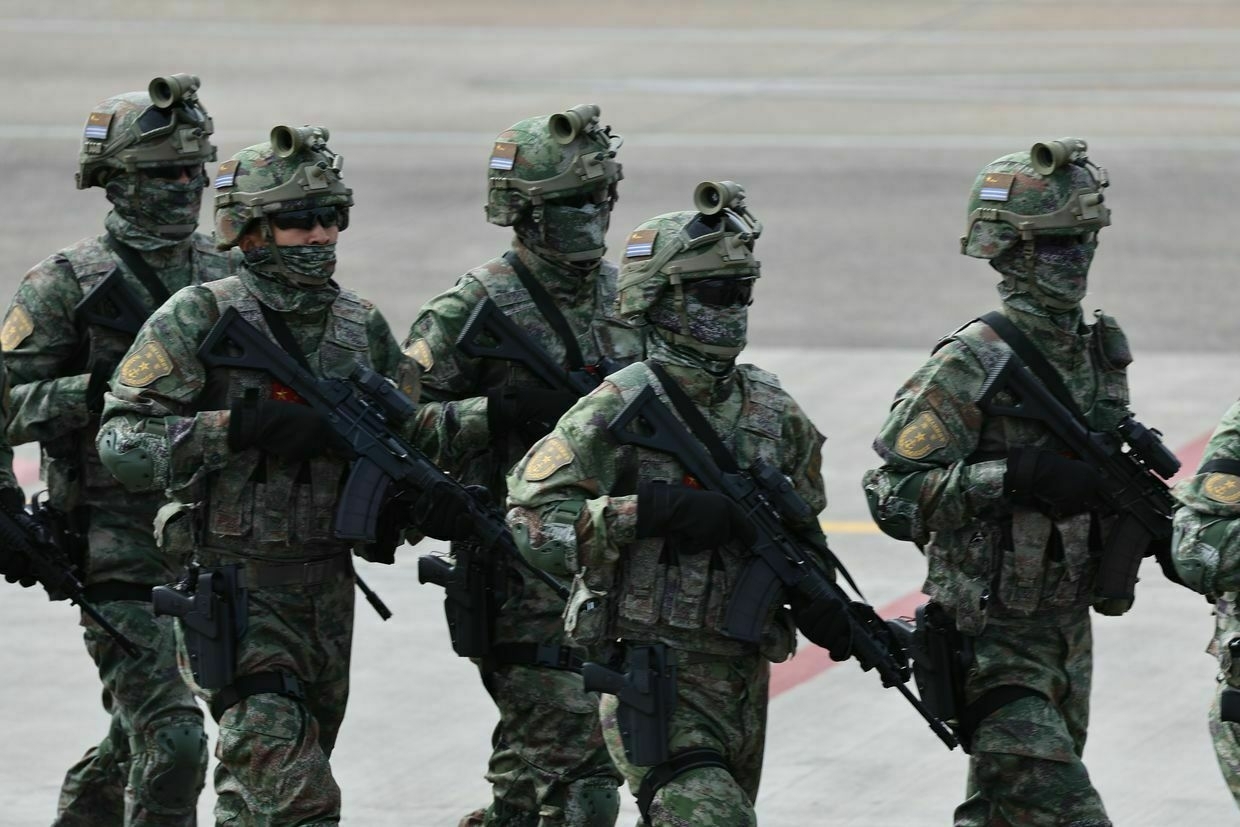
Soldiers from air assault units of the Chinese People’s Liberation Army Air Force (PLAAF) Airborne Corps participate in a drill ahead of Airshow China 2024 on Nov. 9, 2024, in Zhuhai, Guangdong Province of China. (VCG/VCG via Getty Images) “China is closely observing the West’s response to Russia’s actions and sees opportunities for itself amid a potential fracture of transatlantic unity,” Butyrska said.
Underscoring the symbiotic nature of the Russian-Chinese relationship, a Chinese invasion of Taiwan could also present a boon to Moscow.
“Russia wouldn’t need a request from China to keep NATO occupied; it is more likely to take advantage of a Taiwan invasion by undertaking some kind of further aggression in Europe,” Dan Hamilton, a non-resident senior fellow at the Brookings Institution, told the Kyiv Independent.
Ukrainian and Western officials have been raising alarms that a Russian attack against NATO territory — for example, in the Baltics — is an increasingly plausible scenario.
Camille Grand, a security and NATO expert at the European Council on Foreign Relations, concurred that in “the event of a major crisis in Asia, the Russian Federation might indeed try to take advantage of the U.S. focused on a Taiwanese contingency to test NATO and further challenge European security."
Even the more cautious voices do not rule out a possible coordination between China and Russia in the case of an attack on Taiwan.
Jan Svec, a China researcher at the Prague-based Institute of International Relations, notes that an ideal scenario for Beijing is seizing the island by non-military means without sparking a broader conflict with the West.
However “if the situation escalates and the Chinese government decides on a military invasion (which is a less likely but also possible option), then it would make some sense to coordinate with Russia,” he told the Kyiv Independent.
Ukraine war latest: Drones attack Russia’s Black Sea Fleet; Russian pipelines explode in country’s Far East, HUR saysKey developments on July 5-6: * Drones reportedly attack Russia’s Black Sea fleet * Pipelines supplying Russian military explode in Russia’s Far East, HUR source says * Ukrainian drone strike on Russian airfield hits bomb depot, aircraft * Ukraine hits Russian electronic warfare facility making Shahed, Iskander components, General Staff says * Ukraine’s army chief warns of new Russian offensives in northeast as he visits Kharkiv Oblast front Drones attacked Russia’s Black Sea Fleet at the The Kyiv IndependentThe Kyiv Independent news desk
The Kyiv IndependentThe Kyiv Independent news desk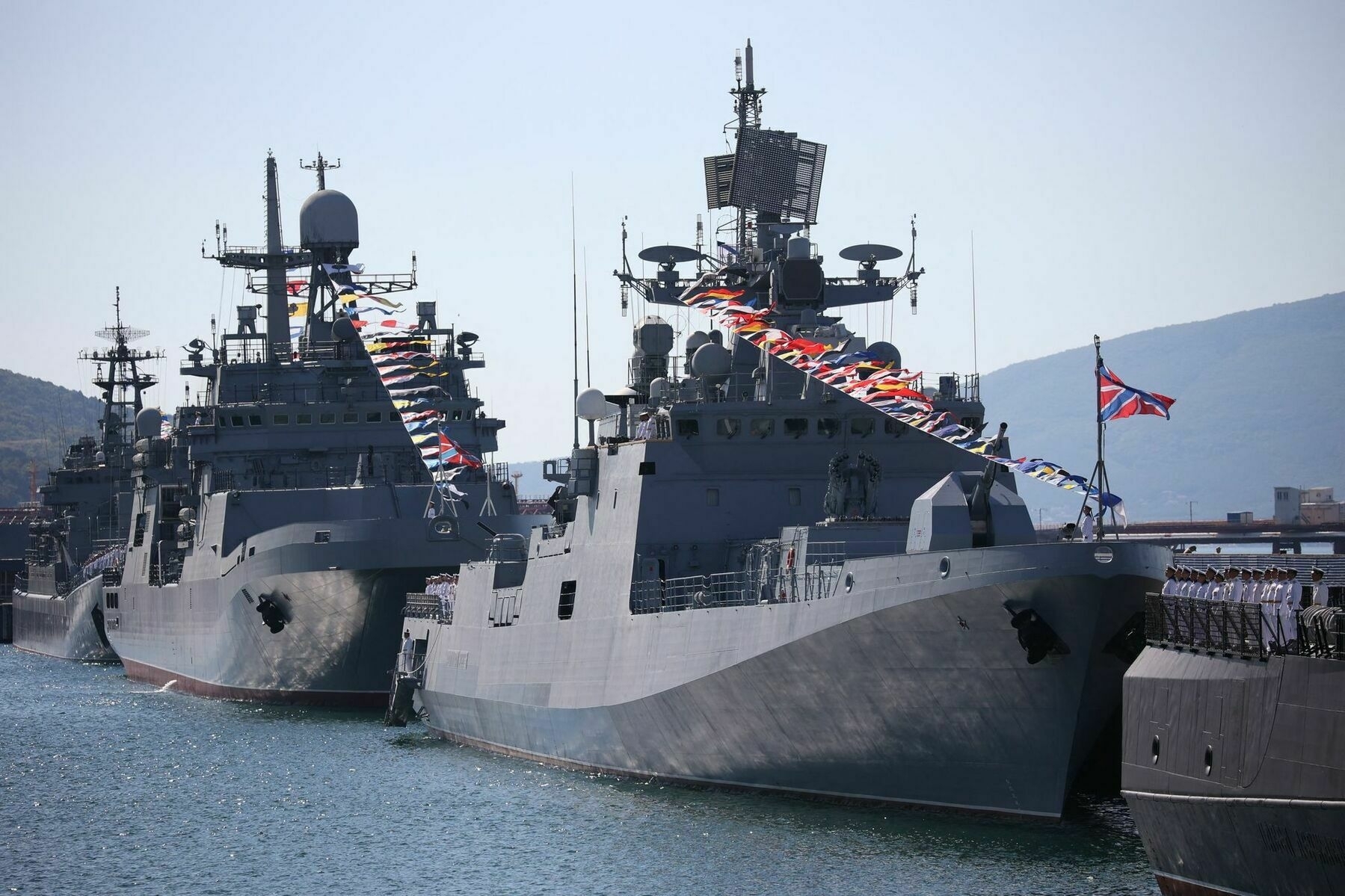
NATO caught with ‘pants down’Putin and Xi have not been shy about the ultimate goal of their “no-limits partnership” — challenging the U.S. and Western dominance on the global stage.
Such clarity seems to be lacking in the NATO camp. U.S. President Donald Trump’s strategy to drive a wedge between Moscow and Beijing by making overtures to Russia has been met with skepticism from experts.
The new U.S. president has also signaled plans to reduce the U.S. military presence in Europe while urging European partners to take up greater responsibility for their own security, allowing Washington to shift focus to the Indo-Pacific region.
But as Hamilton notes, the “North Atlantic and the Indo-Pacific (regions) are strategically linked by the China-Russia entente."
“NATO’s best contribution to this challenge is for Europeans to do more to defend Europe so that Americans can devote more resources to the Indo-Pacific,” he adds.
Allied leaders have rushed to allay Trump’s concerns, agreeing to ramp up the defense spending target from 2% to 5% of GDP during a recent summit in The Hague. However, some experts say this is far from enough to counter a united Russian-Chinese threat.
Edward Lucas, a non-resident Senior Fellow at the Center for European Policy Analysis, agrees that a coordinated Chinese assault on Taiwan and a Russian assault on NATO is “all too plausible."
“What is baffling to me is that NATO, having been on edge after Trump‘s election victory… is slumping back into a posture of complacency,” he told the Kyiv Independent.
Calling the new defense spending target an “aspiration” rather than a reality, Lucas says that “NATO still has its pants down when it comes to defense and deterrence."
The Russia, China, North Korea axisGrand points to another piece of evidence of the intrinsic links between North Atlantic and Indo-Pacific security: North Korea’s involvement in the Russia-Ukraine war.
Pyongyang, traditionally a close partner of China, has shaped up as arguably the most active supporter of Russian aggression in Ukraine and a direct participant in the war.
While China’s support has been mostly economic and material, North Korea has deployed thousands of soldiers to help Russia fight against Ukraine, as well as ballistic missiles and millions of artillery shells.
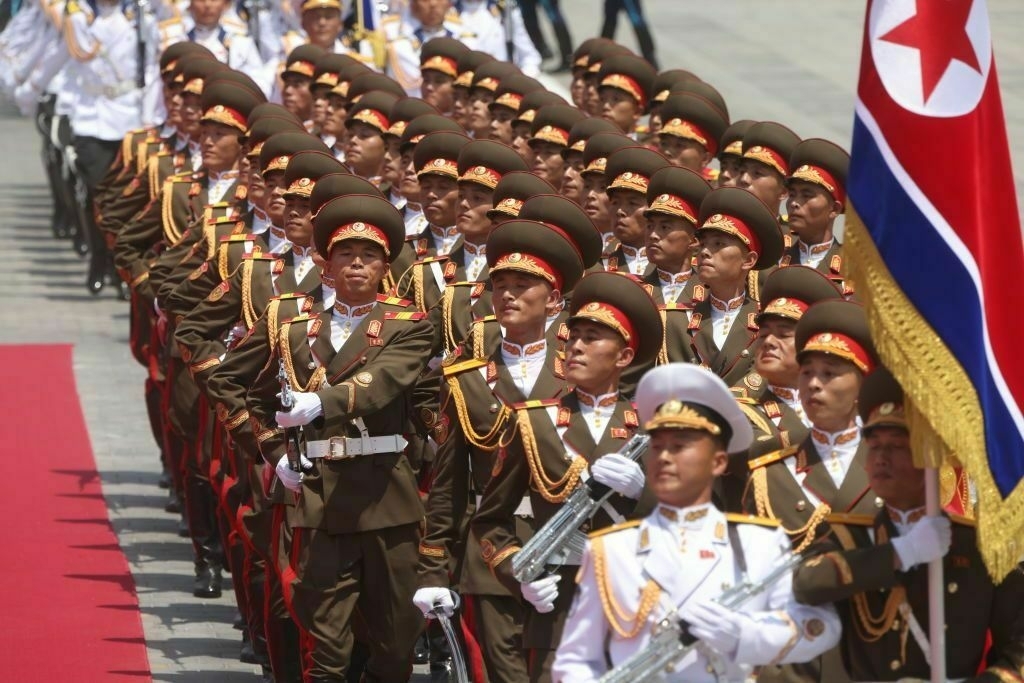
North Korean military officers march during a welcoming ceremony for Russian President Vladimir Putin, on June 19, 2024, in Pyongyang, North Korea. (Contributor/Getty Images) “European countries and the United States are underestimating the threat posed by North Korea,” Butyrska says, adding that Pyongyang’s support for Russian military ventures is “happening with China’s tacit approval."
“Beijing is interested in leveraging this potential to escalate tensions on the Korean Peninsula. This could tie down U.S. forces there at the moment of a possible invasion of Taiwan and draw North Korea into direct confrontation with the United States,” she says.
This united challenge, also linked to the Middle East via the Russian-Iranian partnership, shows that NATO faces the most dire security challenges since the Cold War. Rutte’s warnings should, therefore, not be taken lightly, the experts say.
Author’s note: Hi, this is Martin Fornusek. I hope you enjoyed this article. We provide our content for free, without any paywall. To support our reporting, please consider becoming a member.
-
EXCLUSIVE: Ukraine economy minister breaks down US minerals deal
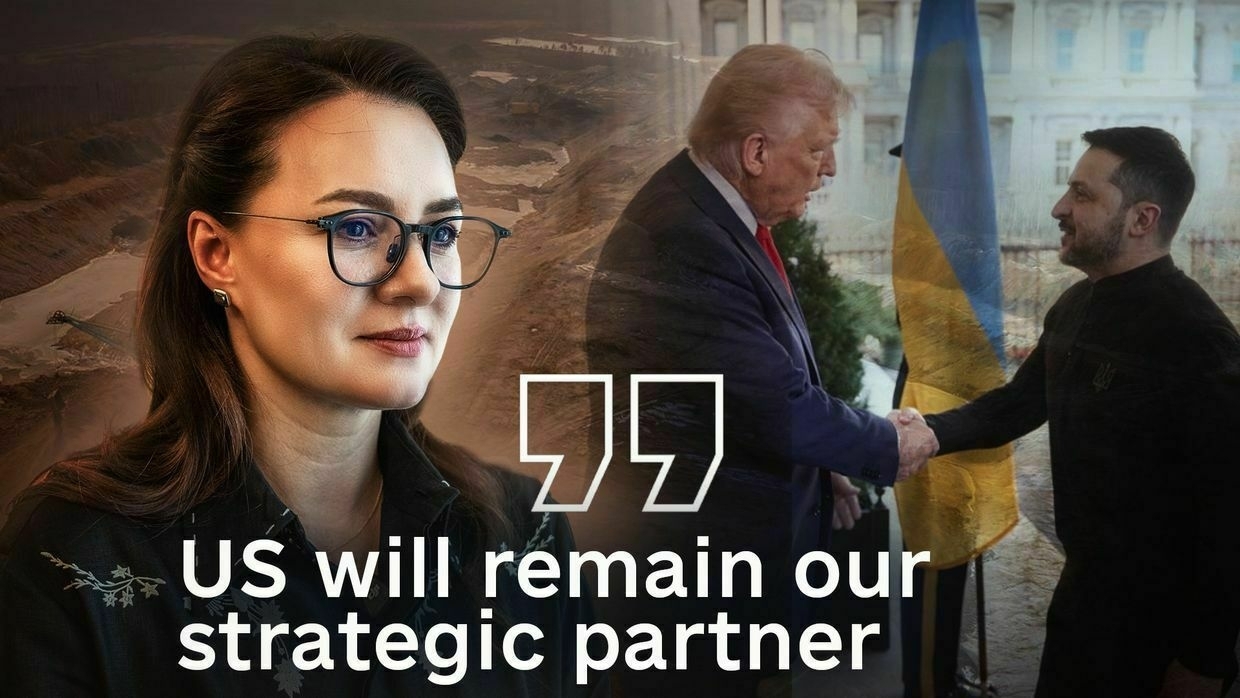
The Kyiv Independent’s business editor Liliane Bivings sits down with Ukraine’s Economy Minister Yulia Svyrydenko to discuss the U.S.-Ukraine “minerals deal” and address the myths surrounding it.
Under the agreement, the two countries are supposed to launch a new joint investment fund, designed to support projects in critical minerals, oil and gas, and related infrastructure, and potentially defense in Ukraine, with returns to be shared over a 10-year period.
Svyrydenko also gives her impressions of the infamous Oval Office meeting between U.S. President Donald Trump and President Volodymyr Zelensky back in February, and explains why Ukraine can be “a good business case” for the U.S.
-
Trump: Disappointed with Putin, satisfied with Zelenskyy
-
Zelenskyy and Trump's conversation, Ukraine's reconstruction and attacks on Ukrainian cities
-
Could veterans change Ukraine’s politics forever?
Editor’s Note: With all the talk about post-war elections, we wanted to see how the conflict itself would reshape political power in Ukraine. Want coverage that supports *all* aspects of the war, not just the booms and the bangs? Upgrade now to support The Counteroffensive!
On January 3, 2024, Vlad Zadorin returned to his home in Blahovishchenske, central Ukraine, happy to be alive after almost two years in Russian captivity.
Only six months into his rehabilitation, he decided to go into politics, believing he would make better decisions for veterans and soldiers than Ukraine’s current leaders.
“Veterans need support not only in words, but also in deeds,” Vlad told The Counteroffensive. “I know exactly what the guys need and how to implement it.”
Veterans have traditionally stayed out of modern Ukrainian politics. When Russia invaded Eastern Ukraine in 2014, only 21 veterans out of 441 were part of the Verkhovna Rada, Ukraine’s parliament — less than five percent of the total number of MPs.
That number was even lower after the 2019 elections, when only seven veterans were elected to parliament, less than two percent of the total number of elected members, according to the official Verkhovna Rada website.
But now, after more than three years of war, the Ukrainian public has an extremely high level of trust in their army – people who have preserved Ukraine's independence with action and not just words.
Veterans and the military are currently not heavily represented in policy-making decisions and negotiating processes – but that’s likely to change in coming years. The place of veterans in Ukraine’s politics is vital to an understanding of what the world could look like after the end of the war.
Vlad Zadorin joined Ukraine’s Armed Forces in 2019 as part of the 35th Separate Marine Brigade. He specialized in working with air defense systems.
On January 3, 2022, Vlad arrived on Snake Island, a small but strategically located island in the Black Sea. When the war broke out the following month, Snake Island became a symbol for the entire country, when Ukrainian border guards refused to surrender to Russian troops.
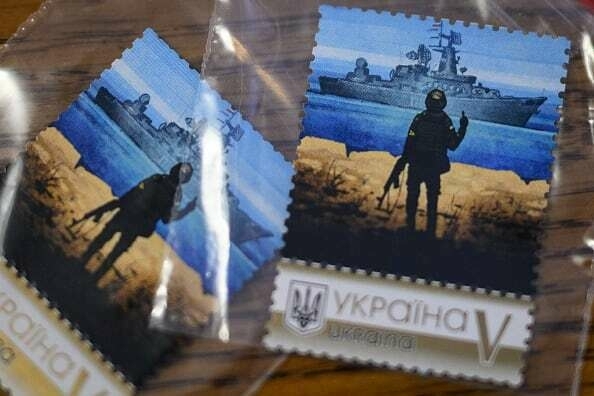
Limited edition Snake Island stamps, commemorating the moment when a Ukrainian soldier defiantly replied, "Russian warship, go f*ck yourself!' when ordered to surrender. Photo from Getty Images. At about 4 a.m. on February 24, 2022, Vlad and his comrades woke up to a combat alarm.
“We didn't know anything about it at all… We didn't receive any directive, any notification that something was about to happen... In fact, only when the ships approached, we realized that everything was over,” recalled Vlad.
Civilians were evacuated, but 80 Ukrainian soldiers were ultimately captured and became the first prisoners of war of Russia’s full-scale invasion. Vlad was among them.
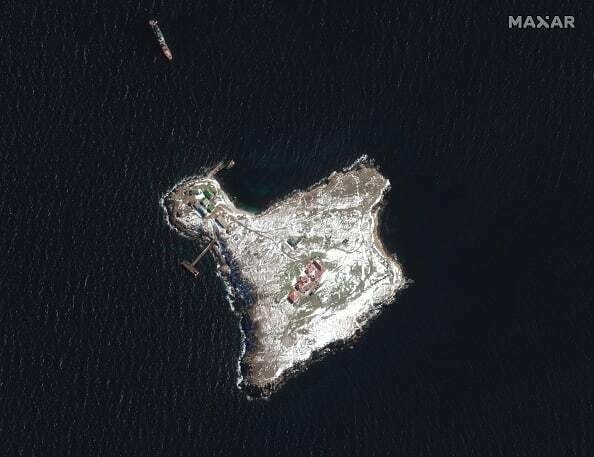
March 13, 2022: Maxar satellite image of Snake Island after Russian invasion. Photo from Getty Images. In captivity, Vlad lost half of his weight. He had to eat potato peels straight from the mud, toothpaste, worms, slugs found under the toilet. After his release, Vlad was diagnosed with a number of health problems, including a severe head injury – the Russians had broken more than 10 bottles on his head.
“When I came out of captivity, I was so morally and emotionally exhausted, so completely exhausted that I felt neither good nor evil, nothing, I didn't care,” said Vlad.
Due to severe injuries sustained during his time in captivity, Vlad can no longer hold weapons. But he still wants to be useful to his country – and particularly to help the other soldiers who are still stuck in Russia's prisons.
He is also especially interested in reshaping veterans policy, which he thinks needs a major shake up. Vlad would especially like to improve rehabilitation programs for veterans – both within Ukraine, and making them more accessible to former soldiers abroad.
Currently, less than 13 percent of the veterans surveyed by the Ukrainian Veterans Fund receive benefits for medical services. The situation worsens regarding educational benefits, financial assistance, and psychological rehabilitation, with less than 10 percent of respondents receiving these services owed to them for their work.
There are already 1.2 million veterans in Ukraine, a number that is growing every day that war continues.
When elections are finally held in Ukraine after years of martial law, the number of veterans in parliament is likely to grow, says political scientist Artem Bronzhukov, deputy director of the Think Tank ‘Polityka’. In 2024, about 70 percent of Ukrainians had a positive attitude toward the participation of veterans of the Russian-Ukrainian war in politics and elections.
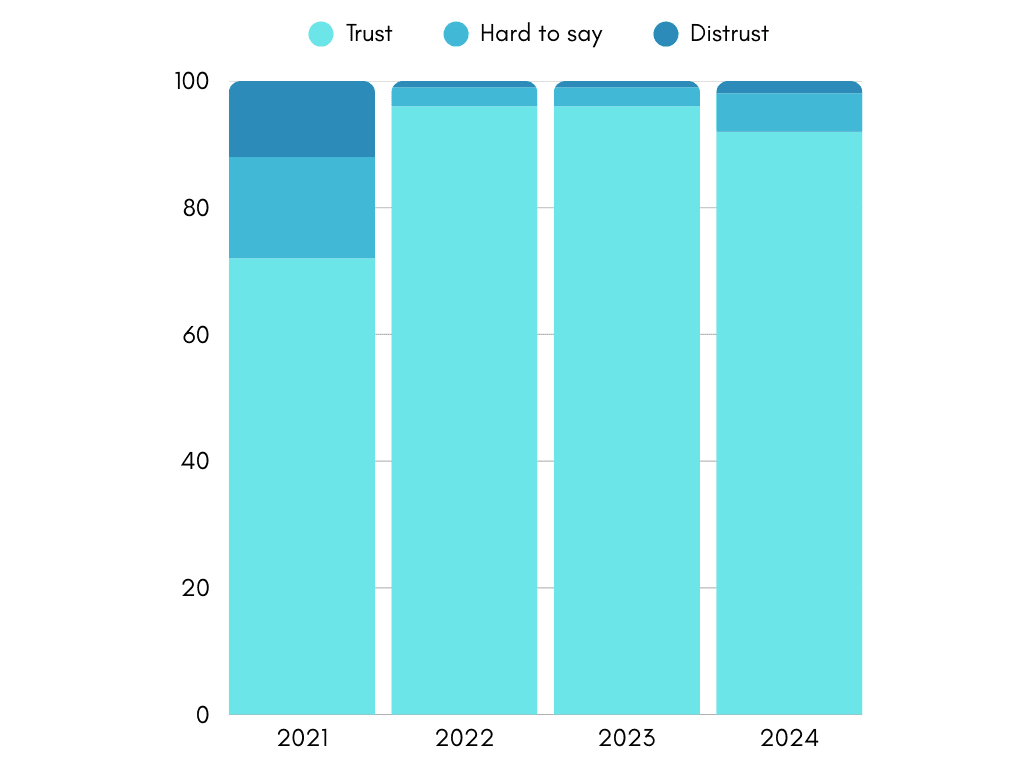
A graph showing KIIS statistics on the annual change in respondents' trust in the Armed Forces from December 2021 to December 2024. The Armed Forces of Ukraine is the institution that has the greatest trust from society as of March 2025 – more than 90 percent. By comparison, the Emergency Service (about 85 percent), the President of Ukraine (almost 60 percent), and the Ministry of Defense (63 percent) have a lower level of trust.
“The Ukrainian army is unique… A huge number of activists went to the front to defend Ukraine and, of course, after the active phase of hostilities is over, many of them will either apply to create their own political projects or join existing political forces,” said Bronzhukov.
The people of Ukraine have also shown interest in army chiefs moving into politics. In February 2024, 94 percent of Ukrainians surveyed had a high level of trust in outgoing army commander Valerii Zaluzhnyi, with polls showing many are interested in a potential party he might form – though he has refrained so far.
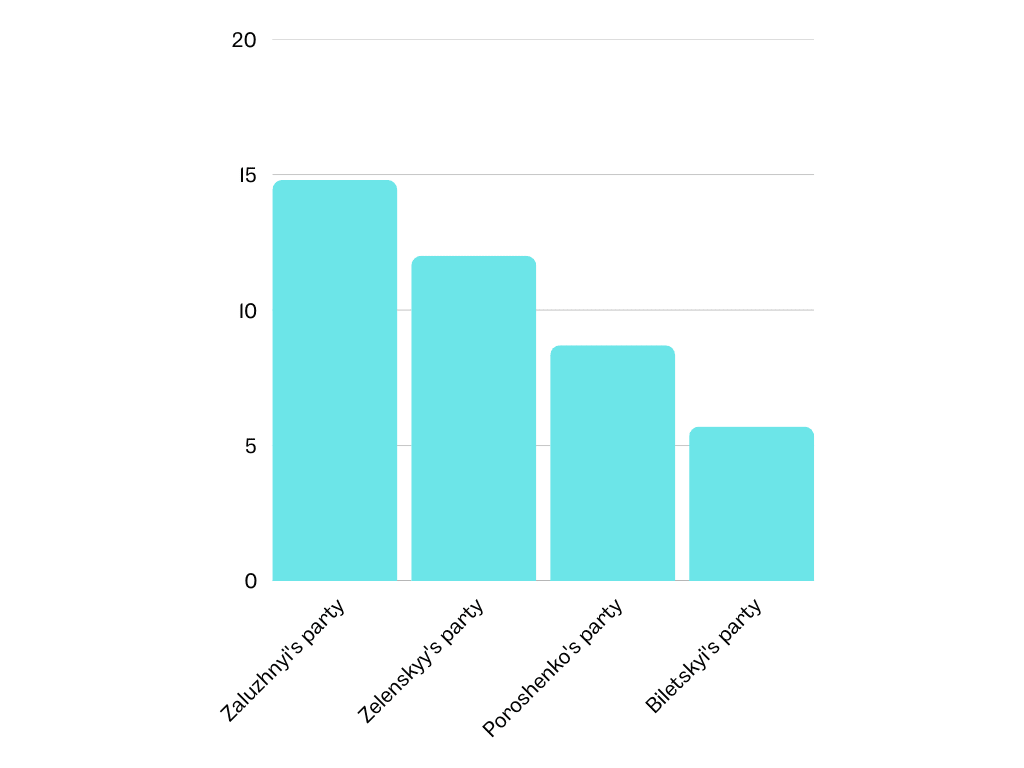
Graph showing the statistics of the New Image Marketing Group on who Ukrainians would support in the parliamentary elections [Poroshenko - president before Zelenskyy]. One group that wants to help veterans get their voices heard is the ‘Chesno’ movement, an organization that aims to build trust in Ukraine’s politics. Last year, it started the Veteran Leadership Program, an initiative to help veterans learn leadership skills.
About 100 veterans have already joined the training courses, which may lead to more veterans with experience standing for office in upcoming elections.
"We already remember cases when, after the start of the [war in Ukraine in 2014], a significant number of politicians used [military] uniforms and veteran status to gain more votes and seats in parliament,” said Viktoriia Oliinyk, head of the Chesno program. “We want this time to have veterans who have their own goals and objectives and defend their positions in the parliament.”
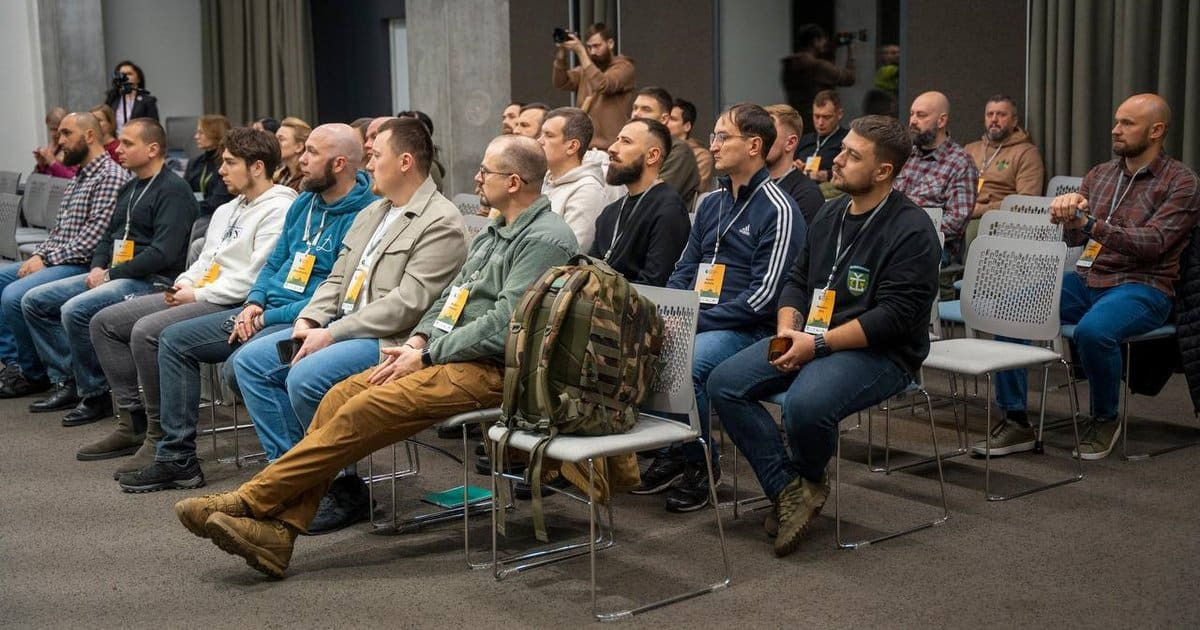
Veterans at the leadership program from the Chesno Movement. Vlad Zadorin can actually be seen in the photo – front row, second from the right. Photo from Chesno Movement website. In the 2014 parliamentary elections, with the outbreak of the war in eastern Ukraine, political parties actively recruited military personnel to their lists on the eve of the election, appealing to society’s patriotism and heroism.
The servicemen had no real political power, but were instead used for display. Many experts fear the same is likely to happen again.
“There will be one hundred percent [the same scenarios]. Therefore, the question here is also about the military personnel themselves, who can organize and create their own political parties,” said political scientist Artem Bronzhukov. “The biggest threat is from the classical political parties, which will try to marginalize military servicemen who, due to various electoral circumstances, may not [be able to organize for political power].”
The frontline near-death experiences – such as performing combat missions and making difficult decisions in extreme conditions – can strengthen useful traits in government as well.
“First and foremost, discipline, because the military and overall army develops discipline, but not everyone has it, unfortunately,” he explained. “The military is trained to perform tasks, so I think if we were given a task in the political arena, we would try to use the skills we learned in the army,” said Vlad.
World War II in the U.S. also generated a demand for military politicians who went on to hold key positions afterward. Dwight Eisenhower, for example, was elected president in 1952.
This surge of veterans' political power was driven both by public demand for stronger national security amid the looming Cold War, and by the growing prestige of the military in the eyes of the public — a trend that may soon also be observed in Ukraine.
Although the number of veterans in American politics has gradually declined, around 20 percent of members of Congress have served in the armed forces.
In the early 1970s, the American Congress had a record number of veterans – 73 percent. This was due to the earlier involvement of the United States in World War II and the Korean War, which increased the proportion of veterans in the country to almost 14 percent in 1970.
“The military are the representatives of society who today have the most acute sense of justice, because they are at the forefront of our country, they ensure its existence and its future. And of course, in politics, people with clear principles… are especially necessary for Ukraine,” said political scientist Artem Bronzhukov.
Even if peace is achieved, the issue of security will be at the forefront of Ukrainians' minds after the war is over.
After all, the threat of Russia will not disappear forever. The critical issues will also be the restoration of the infrastructure destroyed by Russia and the fight against corruption, Bronzhukov explained.
“Ordinary people will change everything,” said Vlad.
NEWS OF THE DAY:
By: Artem Moskalenko
TRUMP THREATENED 10% TARIFFS ON ANTI-AMERICAN BRICS COUNTRIES: He made this statement immediately after the BRICS meeting in Rio de Janeiro, Brazil, in response to criticism of his tariff policy.
The bloc's leaders did not directly criticize Trump's large-scale tariff policy. In a joint statement, they said “serious concern was expressed over the growing number of unilateral tariff and non-tariff measures that distort trade and are inconsistent with WTO rules.”
BRICS positions itself as an alternative to the World Bank and the IMF, which, according to its members, are dominated by the West. It includes Brazil, Russia, India, China, South Africa, Egypt, Ethiopia, Iran, the UAE, and Indonesia.
BILD PUBLISHED UKRAINE'S SECRET ARMS REQUEST TO GERMANY: The list is divided into three categories: air defense, armored vehicles, and electronic warfare equipment, with a total value of billions of euros.
Against the backdrop of massive Russian attacks, Ukraine is requesting four IRIS-T air defense systems, as well as 1,500 IRIS-T SLM medium-range guided missiles and 500 IRIS-T SLS short-range guided missiles. In addition, 200,000 40-mm anti-aircraft munitions are being requested to counter Russian drones.
However, the German Ministry of Defense declined to comment on this list for security reasons. Since the beginning of Friedrich Merz's government, Germany has no longer been publishing information about new arms deliveries to Ukraine.
TRUMP, ZELENSKYY DISCUSSED REPLACING US AMBASSADOR: This happened during their phone conversation on July 4, according to Bloomberg sources.
The list of potential candidates for the position of ambassador includes Prime Minister Denys Shmyhal, Deputy Prime Minister Olha Stefanishyna, Defense Minister Rustem Umerov, and Energy Minister Herman Halushchenko.
These talks are taking place against the backdrop of a new wave of tension in Ukraine's relations with the US. The Trump administration unexpectedly suspended the transfer of artillery shells and air defense systems to Ukraine last week.
OPENING OF TORV, DANISH URBAN PROJECT IN KYIV: Veronika visited the opening of Torv (Danish for ‘marketplace’) on Kontraktova (Contracts) Square — a site that served as Kyiv’s main marketplace and commercial hub from the 9th to 19th century.
The Danish-led urban transformation project focused on both mental and physical health. The redesigned space includes an area for resting in a shadow with plants where you can cool off on hot summer days.
The site is now considered the largest pop-up urban space in the world.
Presentation of the place, led by architect Mikael Colville-Andersen, the Deputy Head of Mission Lars Olaf Søvndahl Petersen.
DOG OF WAR:
Today’s Dogs of War are these cuties that Nastia met in the Zhytomyr region while celebrating prom with her university groupmates. The doggies were super friendly, they must’ve already got used to meeting lots of new people at the guest houses where they live.
Stay safe out there.
Best,
Nastia

